










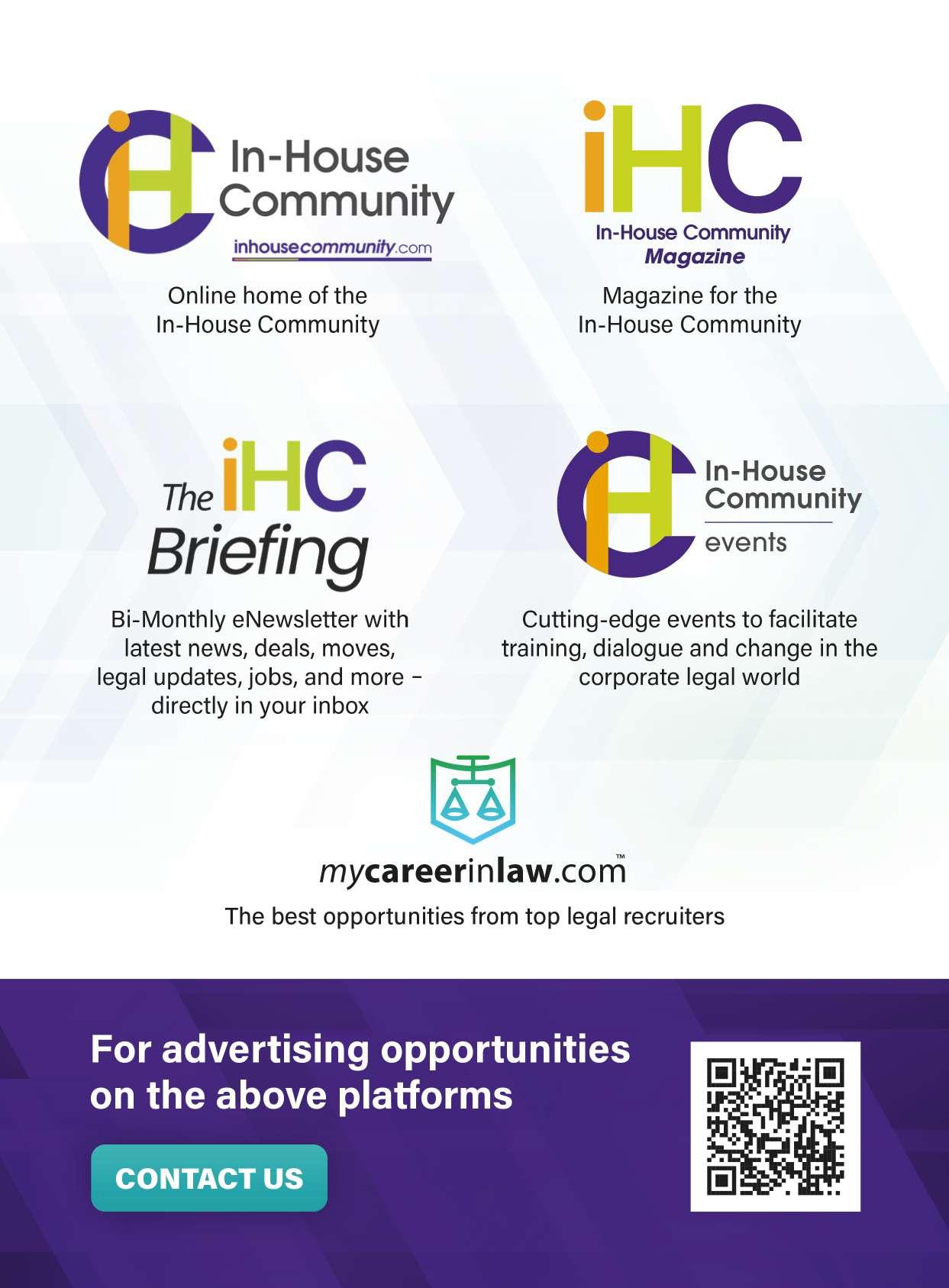
In-House Community
PUBLISHER
Rahul Prakash
+852 8170 2951
rahul.prakash@ inhousecommunity.com
LEAD DESIGNER
Richard Oliver
EDITOR
Nathan Smith
WRITER
Butch Bacaoco
CLIENT RELATIONSHIP
MANAGER
Toni Angeline Dorotheo
Published 6 times annually by InHouse Community Ltd.
Publishers of
• In-House Community
Magazine
• IHC Briefing
Organisers of the
• IHC Events
Hosts of
• www.inhousecommunity.com
• www.mycareerinlaw.com
Forums for the In-House Community
Opinions expressed herein do not constitute legal advice, and do not necessarily reflect the views of the publishers.
© 2025 InHouse Community Limited and contributors.




Paul Haswell, Partner, Howse Williams
Based in Hong Kong, Paul specialises in technology transactions and sourcing. With over 20 years of experience, he focuses on TMT matters, including data and cybersecurity, telecommunications, and emerging technologies like AI and blockchain. A tech enthusiast since childhood, Paul has handled major technology disputes and offers a blend of legal expertise and passion for innovation.
Chai Lertvittayachaikul, Partner, Kudun & Partners
Chai has over 16 years of experience advising clients on corporate transactions, M&A, and project development, with a growing focus on emerging technologies and AI. He has recently advised on high-profile deals in the digital infrastructure space, including timeDotcom’s divestment of AIMS Data Centre (Thailand) to DigitalBridge.
Panupong Wongmueang, Associate, Kudun & Partners
Panupong is an associate with over five years of experience in corporate, M&A, and project development. He advises both listed and private clients on asset and equity acquisitions, business restructuring, and joint ventures. His recent work includes advising on investments in the technology, digital infrastructure, and emerging tech sector.
Frankie Tam, Partner, Eversheds Sutherland
Tam is a partner in Eversheds Sutherland’s technology and data practice in Hong Kong, and she specialises in significant technology outsourcing transactions, AI, cybersecurity and data privacy, payment projects, digital assets and blockchain matters.
EDITORIAL GUIDANCE PANEL




Carina Wessels
Executive: Governance, Legal and Compliance, Alexander Forbes Group Holdings
Preeti Balwani
General Counsel at Hindustan Coca-Cola Beverages
Ron Yu
University of Hong Kong, Chinese University of Hong Kong, Hong Kong University of Science and Technology
Stanley Lui
APAC Legal Director, TI Fluid Systems Co-Founder, White Hat Guys




Carl Watson General Counsel, Arcadis Asia
Raymond Goh General Counsel, International of China Tourism Group
Sally Dyson Director, Firm Sense
Yosr Hamza Director, Legal Counsel, Gartner



Navrita Kaur Chief Legal Officer, Omesti Group
Rebecca Hong Managing Counsel, Intel Corporation
Managing Partner, Russin & Vecchi

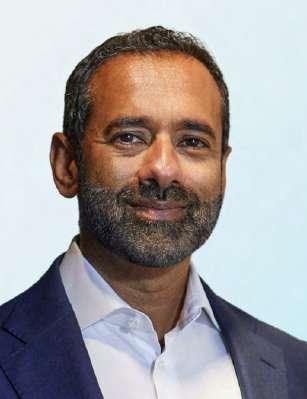

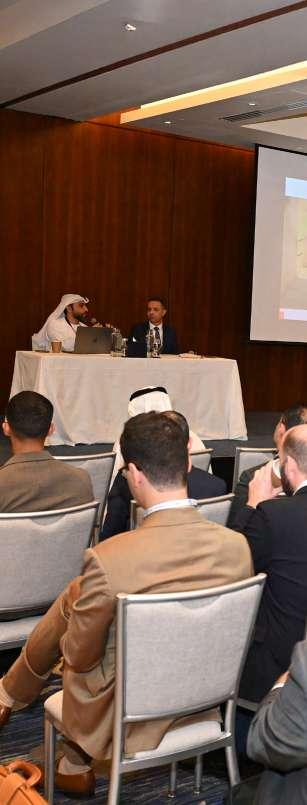



Baker McKenzie has elected International Trade, Compliance and Investigations partner Sunny Mann has been elected as the Firm’s new Global Chair, succeeding Milton Cheng in the role. Mann will take on his four-year term in October.
Based in London, Mann is the global chair of the firm’s market-leading International Trade Practice Group. In addition to London, he has also worked in the Firm’s Washington DC, New York, Sydney and Hong Kong offices.
He advises on compliance and investigations on trade, sanctions, export controls and anti-bribery rules. He also chairs the firm’s Geopolitical Risks Taskforce, and oversaw the Firm’s team supporting numerous top global companies on geopolitical disruption, including responding to the Russian invasion of Ukraine and the ongoing trade and tariff wars.
Mann is a Visiting Professor at King’s College, London (teaching sanctions on the LLM course), and was for 15 years a Visiting Professor at the College of Europe, the leading institute for post-graduate European studies, where he taught an LLM course on Corporate Compliance.
He will sit on the Firm’s Global Management Committee, which, effective July 1, 2025, will also include regional Chief Executives Alex Chadwick (EMEA), Colin Murray (Americas) and Steven Sieker (Asia Pacific), and partners Scott Brandman (New York), Amar Budarapu (Dallas), Pamela Church (New York), Matthew Dening (Riyadh), Andre Gan (Kuala Lumpur), Karen Guch (London), Isabella Liu (Hong Kong) and Christian Vocke (Frankfurt).

“It is an immense privilege to have been elected by my fellow partners to the role of Global Chair in our great Firm. Over its 75 years’ history, our Firm made its name supporting clients to navigate cross-border complexity. Given the levels of change and market disruption we are now witnessing around the world, I am confident that with our unparalleled international reach, there is no firm better placed to support clients navigate the complex and turbulent demands of our current global climate,” said Sunny Mann, Baker McKenzie Global Chair-Elect.
International mediation marked a significant milestone on May 30, 2025 with the establishment of the International Organization for Mediation (IOMed), the world’s first inter-governmental international legal organisation devoted to the use of mediation in resolving international disputes.
More than 80 countries and 20 international organisations, including the United Nations,

sent senior representatives to Hong Kong to witness the signing ceremony of the Convention on the Establishment of the IOMed. Altogether, 33 countries signed the Convention on-site, making them the founding members of the IOMed.
Communist Party of China Central Committee Political Bureau Member and China’s Foreign Affairs Minister Wang Yi attended the ceremony, and was the first to sign the Convention on behalf of China. Addressing the ceremony, Wang said that, as an innovative step in international rule of law, the IOMed has great significance in the history of international
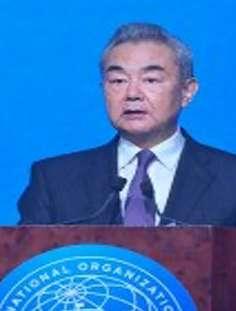
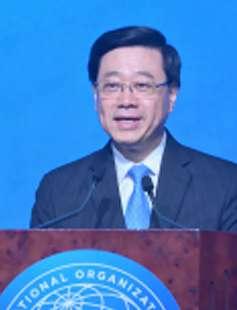

relations. The IOMed will be headquartered in Hong Kong, whose handover is itself a success story of peaceful settlement of international disputes.
Hong Kong Special Administrative Region (HKSAR) Chief Executive John Lee thanked the Central Government for its staunch support of Hong Kong, and the international community for placing their trust and confidence in the city.
“The IOMed will provide a pathway for countries – regardless of culture, language and legal system – to resolve international disputes based on mutual respect and understanding. This is increasingly important amid mounting geopolitical tensions,” Lee said.
He underscored that the IOMed reflected a shared confidence in mediation as a peaceful means to maintain international peace and security, as stipulated in the Charter of the United Nations. He also set out Hong Kong’s advantages as an effective “super connector” and “super value-adder”, and said the city would actively
promote the IOMed’s valuable work in settling international disputes through mediation.
“Despite geopolitical turbulence, Hong Kong builds bridges, not walls,” Lee said. “Under our unique ‘one country, two systems’ principle, Hong Kong is the only world city that enjoys both the China advantage and the global advantage. We are the only common law jurisdiction in China, and the only jurisdiction in the world with a bilingual common law system in both Chinese and English. We have a long tradition of the rule of law, and our courts exercise their judicial power independently.”
The IOMed headquarters will be located at the site of the former Wan Chai Police Station, once renovation of the Grade 2 historic building is completed.

IndusLaw, one of India’s top full-service law firms, has become a CMS member firm. CMS IndusLaw expects to complete on-boarding by the end of 2025. It will enable CMS to deliver seamlessly coordinated, complex cross-border legal services, and marks a significant milestone in CMS’s global growth strategy, enhancing its capabilities in one of the world’s most dynamic and rapidly expanding legal markets.
IndusLaw lawyers will support multinational CMS clients looking to enter and operate in
the Indian market, while the more than 6,800 CMS lawyers in over 45 countries worldwide will support clients wanting to expand internationally from India.
IndusLaw has a presence across India’s principal commercial hubs, including Bengaluru, Delhi & NCR, Hyderabad, Mumbai and Chennai. With 60 partners and more than 400 lawyers, IndusLaw advises many of India’s leading corporates, including over 50 percent of the country’s unicorns established in the last decade.
CMS is an international organisation of independent law firms, with each of the firms respecting the legal and regulatory requirements of its jurisdiction, combining deep local market understanding with a global mindset. In line with the CMS model, IndusLaw remains an independent law firm under the CMS brand.
India is one of the world’s largest economies. Its increasingly globalised economy creates a growing need for international legal advisers with deep local insight. CMS’s global reach, combined with IndusLaw’s domestic expertise, will enable clients to benefit from integrated support across corporate transactions, regulatory matters, disputes, capital markets, technology, intellectual property and more.
With recent regulatory developments expected to significantly open up the Indian legal market to foreign firms, CMS is now in an advantageous position to establish a robust, locally rooted yet internationally connected offering.

“This is a significant step in CMS’s expansion across Asia and globally. With India’s economy being increasingly integrated into the global economic system, the need for agile, forward-thinking legal advisers capable of bridging local and international jurisdictions has never been more critical. With IndusLaw now a CMS member firm, we can offer clients a coordinated, full-service legal platform in India, one of the fastest growing and most strategically important markets in the world,” said CMS Executive Partner Duncan Weston.
In a joint statement, IndusLaw Founding Partners Avimukt Dar, Gaurav Dani, Kartik Ganapathy and Suneeth Katarki added: “This is another milestone in the history of our firm. Joining CMS not only aligns with our strategic goals but enhances the value that we offer to our clients as well as our fee earners. This reflects our shared vision to offer effective and world class legal solutions with global perspectives. While we will continue on our journey as a leading full-service Indian law firm delivering exceptional client service and thought leadership, we now also enjoy the support of CMS to bring to the table the ability to offer a coordinated global offering for our clients. We look forward to driving growth, innovation and collaboration across borders.”
Herbert Smith Freehills Kramer has successfully completed the combination between Herbert Smith Freehills and Kramer Levin on June 1, 2025. This transformative


combination creates an integrated global legal powerhouse of some 2,700 lawyers, including around 630 partners, across 26 offices.
With over US$2 billion in revenues, positioning it among the world’s top law firms, HSF Kramer has established a robust global platform for future investment and expansion. Its extensive footprint and global reach offer immediate synergies in areas, such as private equity, bankruptcy and restructuring, disputes, real estate and securitisation, providing clients with unparalleled support on complex transactions and highstakes disputes.
The firm will have a strong focus on growth and investments, particularly in all these key practice areas, as well as a broader transactional offering, on enhancing its New York presence, and on building its regulatory and technology practices centred around its Washington DC and Silicon Valley offices.
“Today we embark on an exciting new chapter. Herbert Smith Freehills Kramer unites two firms with complementary strengths, shared values and a bold vision for the future. We are delighted by the overwhelmingly positive feedback from our clients
and our people. Together, we will focus on our strategic vision and build on this fantastic platform,” said Rebecca Maslen-Stannage, HSF Kramer Chair and Senior Partner.
HSF Kramer Global CEO Justin D’Agostino added, “In today’s fast-evolving and uncertain macroeconomic landscape, clients need a truly global law firm with deep local insight across all their key markets. Herbert Smith Freehills Kramer is uniquely positioned to deliver exceptional outcomes in an increasingly complex and interconnected world.”
HSF Kramer Asia Managing Partner Graeme Preston commented, “Herbert Smith Freehills Kramer offers our clients a global law firm with a deep understanding of Asia’s business and legal landscapes. Across our seven Asia offices, our firm now has the scale and reputation to advise clients working on the most complex transactions and disputes in the US, as well as the UK, EMEA, Australia and within Asia.”
Justin D’Agostino leads the firm’s Global Executive and is joined by Executive Partners Kristin Stammer (Asia & Australia), Jeremy Walden (UK & EMEA), Paul Schoeman (US), Alison Brown (US Growth & Strategic Integration) and Anna Sutherland (Practices).
Assegaf Hamzah & Partners mourns the passing of its Managing Partner Ibrahim Assegaf on May 20, 2025.

Ibrahim was not only a pillar of the firm but also a trusted advisor and dedicated advocate. His leadership, integrity and unwavering commitment to excellence have shaped the firm into what it is today.

An exceptional lawyer specializing in Banking and Restructuring, Ibrahim combined strategic brilliance with an unwavering dedication to his clients. He navigated complex issues with grace, and mentored many with generosity and insight. He was always eager for a good conversation, sharing his love of knowledge, and challenging those around him to grow.
The firm assures that all matters previously handled by Ibrahim will continue to be managed with the same level of professionalism and attention by the firm. The firm’s team has put in place a clear transition plan, with a dedicated partner or team member taking over to ensure a seamless continuation of such matters.
Kudun and Partners (KAP), one of Thailand’s leading full-service law firms, and Jipyong, a premier South Korean law firm with a strong international presence, formalized a strategic


alliance with the signing of a Memorandum of Understanding in Seoul on May 27, 2025.
Signed by Jipyong Managing Partner Haeng Gyu Lee and KAP Managing Partner Kudun Sukhumananda, the MOU significantly advances legal cooperation between Thailand and Korea. The collaboration between these two full-service, award-winning law firms represents the first and most comprehensive alliances to date between Thai and Korean legal practices – setting a new benchmark for regional cooperation.
Under the terms of the MOU, both firms commit to a strategic framework for mutual client referrals, cross-border legal support and joint business development initiatives. Each firm will serve as the legal partner of the other within its respective jurisdiction. This reciprocal arrangement is designed to provide clients with seamless, high-quality legal services across both markets.
In addition to the referral structure, the MOU also outlines plans for lawyer secondments, joint marketing and promotional activities, and continued knowledge-sharing initiatives to foster deeper integration and professional development across both firms.
“This alliance reflects our mutual commitment to international collaboration, and reinforces our ability to support clients expanding between Thailand and Korea,” said Mr Kudun Sukhumananda. “We are excited to deepen our ties with Jipyong, and jointly offer truly integrated legal solutions.”
Following the signing ceremony, the firms co-hosted a seminar focused on “Navigating the Thai Legal Landscape: Key Regulatory Considerations for Korean Investors.”
Speakers included Jipyong Senior Foreign Attorneys Kim Jinhee and Ban Ki-Il, as well as KAP Partner Chai Lertvittayachaikul and Senior Associate Yanin Sirilak. Kritsana Saeheng, Director of Thailand’s Board of Investment (BOI), Seoul Office, joined the session and shared valuable insights from a Thai governmental perspective.
Attended by Korean corporates, investors and in-house counsel, the session explored the critical legal frameworks, regulatory compliance issues, and investment structuring strategies that Korean companies should be aware of when entering or expanding in the Thai market. The seminar underscored both firms’ commitment to knowledge sharing and client education as part of their broader collaborative agenda.
This partnership reflects a broader trend of regional collaboration among Asia’s leading independent law firms, particularly in supporting clients navigating increasingly complex cross-border transactions and regulatory landscapes.


Clifford Chance added Brad Woodhouse as partner and Head of Class Actions, Australia. He will join the firm’s global Litigation & Dispute Resolution practice and be based in Sydney. Woodhouse brings more than 20 years of experience specialising in large-scale, complex commercial litigation, with a particular focus on class actions. He has acted on several of
strong private funds practice focused on advising clients on the formation and operation of private funds across all strategies. Liu holds a Bachelor of Laws and a Bachelor of Business Management from the Singapore Management University. He is admitted to practice in Singapore and is fluent in English and Mandarin.









Riyadh location and the broader region. AlMasoud brings over 15 years of experience in advising KSA government entities on complex public policy, regulatory, structuring and governance matters, seamlessly merging legal knowledge with strategic public policy approaches. He has completed several executive programs, including the Leadership in Law Firms Program at Harvard Law School, the Executive Leadership Program at Oxford Saïd Business School, and the MBA-E Program at the LSE School of Management.

Greenberg Traurig added senior corporate/commercial lawyer Greta Habib as a Shareholder in the United Arab Emirates (UAE). Prior to joining the firm, Habib founded and led two cross-border corporate law firms in Beirut and Dubai, spearheading strategic growth, innovation and client engagement across jurisdictions. Habib holds an LLM in Private International Law from Paris II-Panthéon-Assas University, is admitted to the Beirut Bar Association, and is a registered legal consultant at Dubai Legal Affairs Department. She is fluent in English, Arabic and French.

Yoon & Yang hired mergers and acquisitions heavyweight Hee Woong Yoon as a new Managing Partner and the Head of the firm’s newly established Future Strategy Planning Task Force. Widely regarded as an M&A guru in Korea, Yoon brings over 30 years of corporate advisory and M&A experience to the firm. As Head of the Future Strategy Planning Task Force, he is expected to play a key role in advancing the firm’s growth strategy and enhancing client services for the largest domestic and foreign corporations. His extensive experience across both
the public and private sectors has cemented his reputation as a leading expert with a deep understanding spanning both the Korean regulatory system and policy environment, as well as the private sector.

Angela Wang & Co enhanced its dispute resolution practice with the appointment of John Yuen Chuen Lee. With almost 30 years of experience and holding dual solicitor qualifications in Hong Kong and England & Wales, Lee brings a wealth of expertise in independent arbitration, accredited mediation, commercial arbitration, litigation, risk management and strategic advisory services. Lee’s commitment to the advancement of the legal profession is further evidenced by his roles as a part-time risk management education tutor for the Law Society of Hong Kong, an Editorial Board member of the Solicitors’ Guide to Professional Conduct, a member of the Law Society Arbitration Committee and its Arbitration Panel, and a member of the Law Society Risk Management Education Accreditation Sub-Committee.

Howse Williams has added Paul Haswell as a partner. Joining from K&L Gates, Haswell focuses on non-contentious and contentious technology work, including technology contracts and licensing, data privacy and cybersecurity (particularly compliance with applicable data protection laws), telecommunications, outsourcing, licensing, cloud and data centres. He has over twenty years of experience working with dedicated technology companies, as well as clients from a broad range of industries who need clear and focused advice on all things tech. He also regularly writes on issues relevant to technology and is a regular speaker at conferences.

Allen & Gledhill has advised Oversea-Chinese Banking Corporation, as the lead manager, on the issue of S$260 million (US$203m) 4.20% subordinated perpetual securities by DBS Trustee, as trustee of CapitaLand Ascott Real Estate Investment Trust. Partners Margaret Chin and Sunit Chhabra led the firm’s team in the transaction.
Allen & Gledhill has advised ST Engineering RHQ (STE UK-Co) and Singapore Technologies Engineering (ST Engineering) on the issue of US$750 million 4.25% notes due 2030, under their S$5 billion (US$3.88b) global medium-term note programme. The notes are unconditionally and irrevocably guaranteed by ST Engineering. Partners Tan Tze Gay, Bernie Lee, Sunit Chhabra and Daren Shiau led the firm’s team in the transaction.
AZB & Partners advised Connedit Business Solutions on the Rs3.5 billion (US$41m) acquisition of more than five % stake in Connedit Business by Catterton Management and DSG Consumer Partners. Partners Hardeep Sachdeva , Priyamvada Shenoy and Shivang Sargoch led the firm’s team in the transaction.
AZB & Partners advised HSBC Securities and Capital Markets (India), as the brokers, on the offer for sale undertaken for 37.5% of the equity share capital of Wendt India. The offering, which aggregated to about Rs606 million (US$7.1m), is one of the first that was undertaken for a complete promoter exit. Partners Varoon Chandra and Lionel D’Almeida led the firm’s team in the transaction.
Baker McKenzie advised CITIC Securities (Hong Kong), as the financial adviser to Skyworth Group, on its voluntary cash offer to buy back about 341 million shares at HK$3.11 (US$0.40) per share. The cash consideration payable by Skyworth is about HK$1.06 billion (US$135m). Skyworth principally manufactures and sells smart TV, home access systems, photovoltaic products and other products. Asia Pacific capital markets co-chair Christina Lee and partner Brian Wong led the firm’s team in the transaction.
Baker McKenzie advised Global Infrastructure Partners (GIP), a part of BlackRock, on forming a strategic partnership with Charoen Pokphand Group (CP Group) and True Internet Data Centre, a major data centre operator in Thailand, to upgrade Thailand’s data centre infrastructure. The partnership marks a significant milestone in digital infrastructure investment in Thailand for GIP. Baker McKenzie provided comprehensive legal advice on the transaction. Partners




Sumet Orsirivikorn and Purachate
Manussiripen, supported by partner Papon Kanungvanichakul, led the firm’s team in the transaction.
Clifford Chance advised Affin Bank on the establishment of its US$2 billion Euro Medium Term Note Programme and its debut US dollar offering of US$300 million 5.112% notes due 2030. The notes are listed in Singapore. Affin Bank and the notes are rated A3 by Moody’s Investor Services. Affin Bank is the second Malaysian bank to enter the US dollar bond market in 2025. Partner Gareth Deiner led the firm’s team in the transaction.
Clifford Chance advised Chinese freshly made tea beverage company Auntea Jenny (Shanghai) Industrial Co on its IPO and listing in Hong Kong. With 9176 stores as of December 31, 2024, Auntea Jenny operates

one of the largest networks of freshly made tea shops in China. China practice chair Tim Wang and partners Jean Thio and Virginia Lee led the firm’s team in the transaction.
Dentons Hong Kong advised Xiamen Jihong on its dual primary listing and the global offering of its H shares in Hong Kong. Xiamen Jihong is also listed in Shenzhen. Headquartered in Xiamen, Fujian, Xiamen Jihong focuses on the Asian market, and it is a leading dual-driven enterprise, primarily engaging in the provision of crossborder social e-commerce and paper packaging solutions. The joint sponsors, together with BOCI Asia, China Galaxy International Securities (Hong Kong), ICBC International Securities and CCB International Capital are the joint global coordinators of this offering. The offering raised gross proceeds of about HK$521.5 million (US$66.5m). Capital
markets partner and corporate finance head Gordon Ng led the firm’s team in the transaction.
Desai & Diwanji advised Porteast Investment, a promoter entity of the Shapoorji Pallonji Group (SP Group), on a landmark Rs286 billion (US$3.34b) financing transaction. Structured as unrated, unlisted, secured, zero-coupon, redeemable non-convertible debentures, the financing was executed to refinance existing debt and support capital needs across the SP Group. Partners Natasha Treasurywala and Shireen Langrana and associate partner Vishal Mali, supported by senior partner Apurva Diwanji, led the firm’s team in the transaction.
Greenberg Traurig advised Lumine Group, a global buy-and-hold forever acquirer of communications and media software businesses, on entering into an agreement to acquire Datafusion Systems. With Datafusion headquartered in Dubai, this will mark Lumine Group’s first acquisition in the UAE, once the transaction closes, which is expected by early Q3, following customary Dubai Development Authority review and approval. Corporate shareholders Chadi Salloum and Dr. Oliver Markmann, supported by shareholder Thilo Ullrich, led the firm’s cross-border, multidisciplinary team in the transaction.
JSA has advised leading agri-tech and food-focused venture capital firm Omnivore on Farmley’s US$40 million Series C funding round led by global consumer-focused investment firm L Catterton. The funding round included both primary and secondary
components and saw participation from existing investors DSG Consumer Partners and BC Jindal Group. Partner Siddharth Mody, supported by partner Rohan Kumar, led the firm’s team in the transaction.

Latham & Watkins advised the initial purchasers on the proposed offering, pursuant to Rule 144A under the Securities Act of 1933, of US$550 million aggregate principal amount of convertible senior notes due 2032 by GDS Holdings, a leading developer and operator of high-performance data centres in China. JP Morgan Securities, as underwriter, offered in a separate SEC-registered offering six million American Depositary Shares borrowed from GDS to facilitate hedging transactions by some of the initial investors in the notes. Hong Kong corporate partners Posit Laohaphan and Benjamin Su, supported by New York partner Bora Bozkurt, led the firm’s team in the transaction.
Latham & Watkins advised the initial purchasers on the upsized offering pursuant to Rule 144A under the US Securities Act of US$600 million in aggregate principal

amount of convertible senior notes due 2030 by Bilibili. Hong Kong corporate partner Posit Laohaphan, supported by Hong Kong partners Benjamin Su and Mandy Wong and New York partner Elena Romanova, led the firm’s team in the transaction.
Maples acted as Cayman Islands counsel to Antalpha Platform Holding Company on its IPO of about 4.43 million ordinary shares and its listing on the Nasdaq. The offering raised about US$56 million. Janelle Ho led the firm’s team in the transaction, while Skadden, Arps, Slate, Meagher & Flom advised on US law. The underwriters were advised by Cleary Gottlieb Steen & Hamilton on US law.
Maples acted as Cayman Islands counsel to Yuanbao on its IPO of two million American depositary shares, each representing six Yuanbao Class A ordinary shares, on the Nasdaq. The offering raised about US$30 million. Vivian Lee led the firm’s team in the transaction, while Kirkland & Ellis International and Han Kun Law Offices advised on US law and Chinese law, respectively. The underwriters for the offering were represented by Latham & Watkins and JunHe on US law and Chinese law, respectively.
Paul Hastings advised China International Capital Corporation Hong Kong Securities, as the sole sponsor, overall coordinator, joint global coordinator, joint book-runner and joint lead manager, and other underwriters on the HK$242 million (US$31m) global offering and listing of MetaLight in Hong Kong. MetaLight operates Chelaile. Founding partner and chair of Greater China Raymond Li and corporate
partners Chaobo Fan and Steven Hsu led the firm’s team in the transaction.
Rajah & Tann Singapore acted for Kiranakart on its cross-border amalgamation with its wholly-owned subsidiary incorporated in India, Kiranakart Technologies (KT), via a scheme of arrangement pursuant to the Companies Act 1967 of Singapore. This transaction is the first completed cross-border merger between a Singapore-incorporated company and a foreign-incorporated entity utilising this structure. M&A partners Evelyn Wee, Hoon Chi Tern and Jasselyn Seet, supported by senior partner Lee Eng Beng and partners Sim Kwan Kiat, Raelene Pereira and Cherie Tan from the restructuring & insolvency practice, led the firm’s team in the transaction.
Rajah & Tann Singapore advised Clime Capital, acting through Southeast Asia Clean Energy Fund II Master, and UOB Venture Management, acting through Asia Impact Investment Fund II (Singapore), on their Series A equity investment in Nymble Holdings, the Singapore holding company of Stride. Partners Tracy-Anne Ang (M&A) and Cherie Tan (restructuring & insolvency) led the firm’s team in the transaction.
S&R Associates represented AKM Enterprises, part of the MBD Group, on the Rs4.9 billion (US$58m) sale of the MBD Neopolis Mall and Radisson Blu Hotel MBD in Ludhiana, Punjab to Select Infrastructure, a special purpose vehicle of listed real estate investment trust Nexus Select Trust. Partners Radhika Iyer and Meher Mehta, supported

by partner Avikshit Moral, led the firm’s team in the transaction.
S&R Associates represented Hitachi Payment Services on its strategic investment in Spydra Technologies, an enterprise blockchain platform. Partner Sanjeev Adlakha also led the firm’s team in the transaction.
Saraf and Partners acted for Moody’s affiliate ICRA on its US$26 million acquisition of 100% shareholding in Fintellix India from LFG Services Mauritius Holdings and G2 Acquisition, both of which are part of US-based private equity firm Stellex Capital Management group. The acquisition of Fintellix will strengthen the ICRA Group’s portfolio of credit risk assessment and monitoring tools by adding risk reporting capabilities to its existing solutions. Senior partner Vaibhav Kakkar and partners Snigdhaneel Satpathy and Debarpan Ghosh led the firm’s team in the transaction. Samvad Partners acted for LFG Services Mauritius Holdings and G2 Acquisition.
Shardul Amarchand Mangaldas & Co advised Aditya Birla Capital on the grant of a term loan facility to Juniper Green Ray Two. The funding supports the development of a 150 MWAC/218 MWDC solar photovoltaic power plant located in Solapur District, Maharashtra. The deal was valued at about Rs5.33 billion (US$62m). Partner Anurag Dwivedi also led the firm’s team in the transaction.
Shardul Amarchand Mangaldas & Co advised Ather Energy and the promoter selling shareholders, Tarun Sanjay Mehta
and Swapnil Babanlal Jain, on Ather Energy’s IPO aggregating to about Rs29.8 billion (US$351m). The offering consists of a fresh issue and an offer for sale by certain selling shareholders. The book-running lead managers on this transaction were Axis Capital, HSBC Securities and Capital Markets (India), JM Financial and Nomura Financial Advisory and Securities (India). National capital markets head Prashant Gupta and partner Ruth Chenchiah, supported by partner Manav Nagaraj, led the firm’s team in the transaction.
Skadden advised Antalpha Platform Holding Company on its US$56.7 million IPO and listing on the Nasdaq. China practice co-head Haiping Li, SEC reporting and compliance co-head Brian Breheny, Capital markets global head Ryan Dzierneijko and corporate partner Shu Du, supported by blockchain and digital assets group co-head Daniel Michael (New York) and partners Alessio Evangelista (litigation- Washington DC), Eytan Fisch (national security-Washington DC), Sean Shimamoto (tax-Houston) and Heather Cruz (investment management-New York) and Kevin Hardy (investment management-Chicago), led the firm’s team in the transaction.


Skadden advised Bilibili, a Nasdaq and Hong Kong-listed leading video community for young generations in China, on its upsized offering of US$690 million convertible senior notes due 2030. The transaction was completed on May 23, 2025. Corporate partners Haiping Li, Paloma Wang, Yuting Wu and Jonathan Stone, supported by partners Alec Jarvis (New York), Joseph (Yossi) Vebman (New York) and Kevin Hardy (Chicago), led the firm’s team in the transaction.
Trilegal advised a syndicate of book-running lead managers, comprising Axis Capital, HSBC Securities and Capital Markets (India), Jefferies India and SBI Capital Markets, on the IPO of equity shares by Belrise Industries, comprising a fresh issue of equity shares aggregating to Rs21.5 billion (US$251m). The IPO was oversubscribed 41x, and the equity shares saw about an 11% listing premium. Partners Richa Choudhary and Murtaza Zoomkawala led the firm’s team in the transaction.
Trilegal advised Avathon Capital on the Indian aspects of its acquisition of 100% stake in OculusIT from ElevenX Capital. Partners Kosturi Ghosh, Swarnima, Himanshu Sinha and Samsuddha Majumder led the firm’s team in the transaction.
TT&A advised an Indian development finance institution on its subscription to listed, senior, secured non-convertible debentures, aggregating to Rs14.75 billion (US$172m), issued by Summit Digitel Infrastructure. Partner Nikhil Bahl led the firm’s team in the
transaction. JSA advised Summit Digitel Infrastructure.
TT&A advised on the financing, via unrated, unlisted, secured, zero coupon, redeemable non-convertible debentures with nominal value of Rs10 million (US$116,760.00) each, aggregating up to Rs286 billion (US$3.34b), by Porteast Investment for refinancing of existing debt of the issuer and other SP Group entities. The debentures were secured by the SP group’s shareholding in its oil and gas vertical and real estate vertical, and 50% of SP group’s shareholding in Tata Sons. Partners Sonali Mahapatra and Tanay Agarwal led the firm’s team in the transaction, which is the largest private credit deal in India. Desai & Diwanji advised Porteast Investment.
WongPartnership acted for Ant International on the US$4.62 million series seed funding round of Gprnt, a local sustainability reporting and data platform company launched by the Monetary Authority of Singapore (MAS) as a digital platform of the Global Finance and Technology Network (GFTN). Partners Kyle Lee and Jolynn Lim led the firm’s team in the transaction.
WongPartnership acted as transaction counsel to United Overseas Bank, as original lender, sole coordinator, mandated lead arranger, underwriter and book-runner, on the syndicated financing relating to the acquisition of two business parks and an industrial building by Brookfield Asset Management from Mapletree Industrial Trust, a Singaporelisted REIT. Partners Christy Lim, Clarence Kang and Angela Lim led the firm’s team in the transaction.


From AI in legal to deep dives into ESG, tax and competition reform, the 2025 Abu Dhabi In-House Community Congress gathered over hundred counsel and business leaders to exchange hard-won insight and preview the forces that will shape Abu Dhabi legal landscape in 2026.
Abu Dhabi welcomed more than hundred in-house counsel and compliance leaders on 29 April for the 2025 Abu Dhabi In House Community Congress at the Rosewood on Al Maryah Island.
IHC publisher, Rahul Prakash opened the day with a reflection on the growth of the Community in the Gulf. The first substantive session, AI and the In House Legal Team, paired legal engineer Ali Chaudhry of Simmons & Simmons with Ali Haidar of Microsoft UAE, Bilal Syed of Thomson Reuters and Core42 general counsel Roopal Jobanputra. Moderator Sadiq Jafar, Managing Partner of Hadef & Partners steered debate on contract analytics, vendor selection and
the emerging federal framework for artificial intelligence.
Elio Nassar from Thomson Reuters then delivered a concise spotlight on new metrics for demonstrating departmental value before delegates broke for coffee.
Updates on dispute resolution followed. Partners Mohamed Eissa and Omar Al Heloo of Hadef & Partners analysed recent amendments to the Civil Procedure Code and shared practical tips for early case assessment. Attention then turned to tax – an important topic for legal counsel in UAE. Patryk Karczewski of AMERELLER outlined gaps in corporate tax and VAT interpretation and explained current practice
inside the Federal Tax Authority. Vishal Gandhi, managing partner of Gandhi & Associates, closed the morning with a brisk review of Indian legal reforms affecting Gulf investors.
Lunch provided a welcome pause and networking opportunity before an afternoon centred on sustainability. Fadi Hassoun, Rodrigo Carè and Khaled Mehdi from Galadari Advocates and Legal Consultants joined Crescent Petroleum’s Faris Nasrallah to map the regulatory drivers behind corporate governance and ESG reporting in the Emirates. Case studies of green bond issuances in both ADGM and DIFC underlined the commercial appetite for sustainable finance.
Essential considerations for doing business in the UAE kept the room engaged. Hadef & Partners executive partner Yasser Omar and senior counsel Diana Froyland compared the three coexisting data privacy regimes,
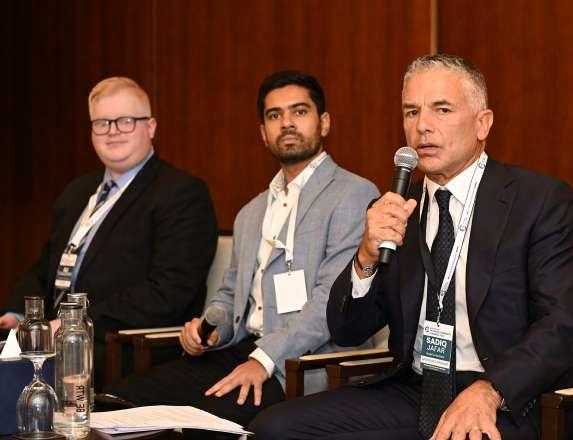
unpacked the January 2025 Cabinet Decision on competition, and supplied a checklist for agency agreements in digital retail.
Christopher Gunson of AMERELLER then traced the typical sale and exit milestones as Gulf companies move from startup to scale up, stressing the need for early housekeeping to

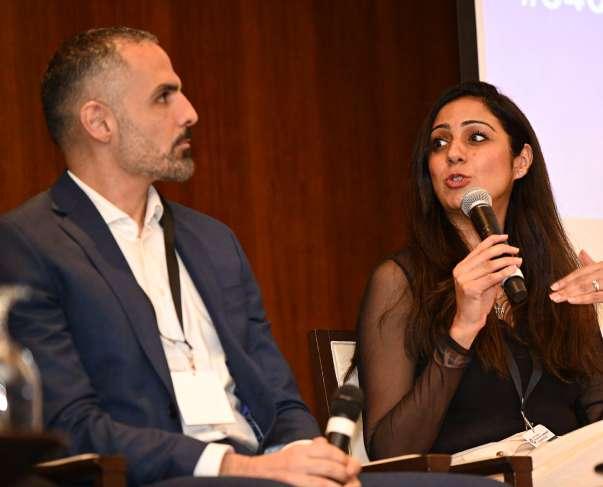
avoid valuation discounts. The final plenary addressed United States trade tools. Sheila Shadmand and Heather Martin of Jones Day joined Mubadala counsel Martin Thorne to explore the evolution of tariffs and sanctions and to consider how a change in Washington might influence Middle East commerce.
A brief prize draw brought the formal agenda to a close, yet many delegates lingered to
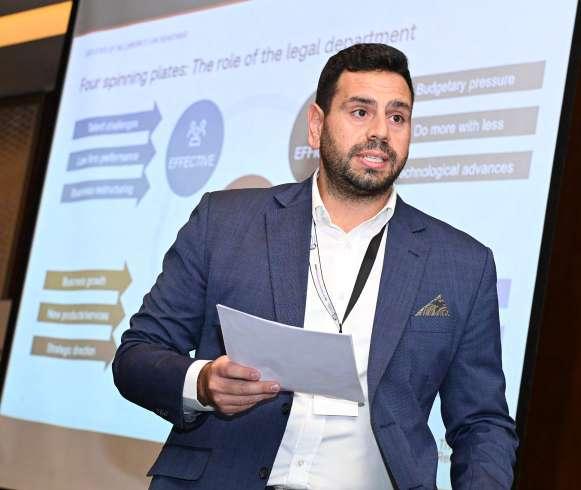
continue discussions sparked by the day’s sessions. The Congress delivered practical insight on technology, regulation and sustainability while reinforcing the value of collaboration across the regional in-house community. Plans are already under way for the Abu Dhabi edition to return in 2026, promising another opportunity to share experience and shape best practice for the year ahead.


We Speak to David Cameron, Founder and Managing Partner of David Cameron Law Office (DCLO) in Hong Kong on Rethinking Legal Practice in Hong Kong, Moving Beyond Billable Hours, and Balancing Life as a Lawyer and Father of Four
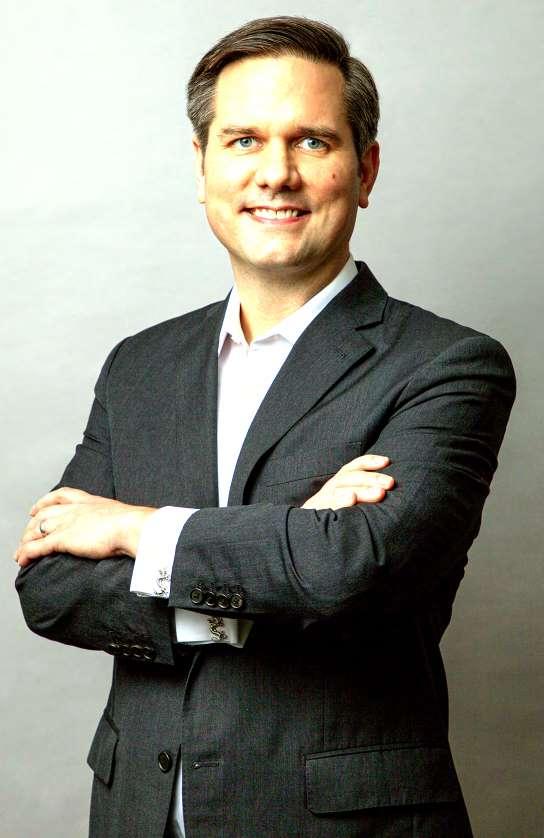
YOU’VE MOVED AWAY FROM THE TRADITIONAL BILLABLE HOUR MODEL IN FAVOUR OF FIXED FEES. WHAT INSPIRED THIS DECISION, AND HOW HAS IT CHANGED THE WAY YOU WORK WITH CLIENTS?
The billable hour rewards inefficiency and creates misaligned incentives between lawyer and client. We wanted to flip that model on its head. By shifting to fixed fees, we’ve been able to focus on outcomes, not time spent. It encourages proactive legal support, fosters trust, and creates cost certainty, all of which clients increasingly demand. For us, it also means we can build deeper, longer-term relationships rather than just responding to isolated requests. Internally, it promotes better time management and collaboration among lawyers. From the start, DCLO was built around this model; not as a gimmick, but as a core part of how we work.

DCLO PROMISES PARTNER-LEVEL ATTENTION ON EVERY MATTER. HOW DO YOU MAINTAIN THIS PERSONAL TOUCH AS YOUR FIRM CONTINUES TO GROW? AND WHY DO YOU THINK THAT IT’S IMPORTANT TO CLIENTS?
Partner-level attention is not a marketing line, rather it’s a deliberate choice in how we structure our firm. We are growing quickly but carefully, bringing in seasoned lawyers who are hands-on, commercially minded, and aligned with our culture. We avoid bloated teams and unnecessary delegation, which clients often find frustrating. Many of our clients are sophisticated investors, entrepreneurs, and businesses who value responsiveness, clarity, and experience. They don’t want to train their lawyers; they want answers. We’ve found that maintaining a lean, senior team fosters better results and stronger relationships. As we grow, we’re focused on scaling smartly without compromising that ethos.
AFTER BUILDING YOUR CAREER AT SOME OF THE WORLD’S BIGGEST LAW FIRMS, WHAT MOTIVATED YOU TO START YOUR OWN INDEPENDENT PRACTICE?
After over a decade at major international firms, I saw an opportunity to build something different, namely a law firm that is more agile, more client-focused, and free from the structural inefficiencies of Big Law. Many clients no longer wanted the traditional law firm model: large teams, opaque billing, and inconsistent quality. I believed there was room in the market for a high-quality, fixed-fee firm led by senior lawyers who were accessible and commercially minded. Starting DCLO allowed me to take that vision and build it from the ground up. It’s been incredibly rewarding to work closely with clients, help grow their businesses, and know that our model genuinely adds value.
ARE THERE ANY LEARNING EXPERIENCES FROM YOUR EARLIER CAREER THAT CONTINUE TO INFLUENCE YOUR APPROACH AT DCLO?
Working at large international firms taught me a great deal, both about what works and what doesn’t. I saw firsthand the value of technical excellence, coordinated cross-border execution, and deep sector expertise. I also learned the importance of giving clients advice that is not only legally sound, but commercially relevant and usable.
But there were frustrations too. Clients were often handed down to junior teams, responsiveness could be inconsistent, and billing lacked transparency. The structure sometimes rewarded internal hierarchy over efficiency or client service. These experiences helped shape DCLO’s model: senior lawyers leading every matter, fixed fees instead of billable hours, and a culture focused on clarity, speed,

and impact. In many ways, DCLO is a direct response to the inefficiencies I observed earlier in my career.
YOUR FIRM COVERS A BROAD SPECTRUM OF PRACTICE AREAS, FROM M&A TO FAMILY LAW AND IMMIGRATION. WHICH AREA IS CURRENTLY GENERATING THE MOST INTEREST OR ACTIVITY IN HONG KONG? WHAT IS YOUR OUTLOOK ON GROWTH AREAS IN HONG KONG FOR LAW FIRMS?
We’re seeing strong momentum across several areas, but two stand out: cross-border corporate work—including M&A, venture capital, and fund structuring—and regulatory advisory work, particularly in digital assets. Hong Kong’s evolving role as a financial gateway to China continues to create demand for structuring expertise, especially through vehicles like Hong Kong Limited Partnership Funds. At the same time, new licensing regimes for virtual asset platforms and fund tokenisation are creating opportunities for lawyers who understand both the tech and the rules.
WHAT ARE THE MAIN CHALLENGES INDEPENDENT LAW FIRMS FACE IN HONG KONG TODAY, AND HOW DOES DCLO STAY COMPETITIVE?
Independent firms face several headwinds, from brand recognition, access to cross-border work, and recruiting senior talent in a competitive market. But those challenges also create opportunities. Clients are increasingly questioning the value of large firm overheads and are open to working with smaller firms that deliver high-quality advice, quickly and efficiently.
At DCLO, we stay competitive by focusing on value and responsiveness. We deliberately hire senior lawyers who can lead matters from day one. We offer fixed fees, which clients appreciate for cost certainty. And we’re proactive about collaboration, whether that’s building associations with offshore firms or staying ahead of regulatory changes in fast-moving areas like digital assets and fund structuring. We’re not trying to be everything to everyone, rather we’re focused on being indispensable to the clients we serve best.
DCLO POSITIONS ITSELF BETWEEN LARGE INTERNATIONAL FIRMS AND LOCAL PRACTICES. WHAT UNIQUE ADVANTAGES DOES YOUR FIRM OFFER THAT LARGER FIRMS MIGHT NOT?
We sit in a unique space: international in capability, but independent in structure. That gives us flexibility large firms can’t match. We move faster, work leaner, and avoid the internal complexity that often slows things down. Every client gets direct access to senior lawyers who are hands-on and commercially minded, and not just technically proficient.

We also price differently. Our fixed-fee model eliminates billing surprises and aligns our incentives with the client’s. Larger firms often operate on rigid hourly models and hierarchical staffing, which can dilute quality and inflate costs. Local firms may offer lower fees, but often lack the cross-border expertise or depth in complex transactions.
At DCLO, we aim to provide the best of both worlds: international-level advice, delivered efficiently, with a clear focus on client needs.
WITH THREE GRADUATE DEGREES AND A BA FROM TOP UNIVERSITIES, HOW HAS YOUR ACADEMIC BACKGROUND INFLUENCED YOUR LEGAL AND BUSINESS PERSPECTIVE?
I have both a law degree and a business degree, and they shape my approach in complementary ways. My legal training helps me spot risks, anticipate problems, and protect downside, which is essential in any transaction. My business degree, on the other hand, gives me the tools to identify opportunities, understand commercial drivers, and contribute meaningfully to strategy. It also
helps me understand how my clients’ businesses actually operate, which improves the relevance of my advice.
It’s also been key in building DCLO itself. We run lean, focus on efficiency, and are structured to deliver maximum value. As a result, clients don’t view their legal spend with us as a cost; instead they see it as an investment that supports their growth and long-term success.
WHAT ADVICE WOULD YOU GIVE TO YOUNG LAWYERS WHO ASPIRE TO BUILD AN INTERNATIONAL CAREER IN LAW, ESPECIALLY IN TODAY’S RAPIDLY CHANGING ENVIRONMENT?
Be curious, adaptable, and commercial. Legal knowledge is essential, but what sets international lawyers apart is their ability to understand context, such as different legal systems, business cultures, and client expectations. Take every opportunity to work across jurisdictions, learn new sectors, and develop your soft skills. Being able to listen well and communicate clearly across borders is just as important as technical ability.
Also, be willing to challenge the traditional path. The legal profession is changing fast, being driven by technology, new business models, and client expectations. Don’t assume that what worked for the last generation will work for you. Focus on delivering value, not just legal answers. The lawyers who will succeed internationally are those who think like advisors, not just technicians.
AS AN EXPAT LAWYER WHO HAS BUILT A LONG-TERM CAREER IN HONG KONG, WHAT HAVE BEEN THE BIGGEST SURPRISES OR LESSONS LEARNED ABOUT PRACTICING LAW HERE?
The biggest lesson has been the importance of staying power. A lot of people have come and gone since the pandemic, but clients are
increasingly recognising and valuing those who are committed to the Hong Kong market for the long term. Building trust here takes time, and there’s no substitute for consistency, presence, and local understanding. I’m fully invested in Hong Kong – both professionally and personally – and I believe the next 5 to 10 years will bring remarkable growth, both for the city and for DCLO. In a market like this, long-term credibility matters, and that’s something we’ve worked hard to earn and will continue to build on.
WHAT DO YOU ENJOY MOST ABOUT LIVING IN HONG KONG AS AN EXPAT, AND HOW HAS THE CITY SHAPED YOUR PROFESSIONAL AND PERSONAL OUTLOOK?
Hong Kong is one of the few places in the world where you can do high-level international work while living minutes from hiking trails, beaches, and vibrant neighbourhoods. It’s fast-paced but manageable, cosmopolitan but compact. Professionally, it keeps you sharp because clients move quickly, and expectations are high. That pushes you to be efficient, commercial, and globally aware. Personally, the city offers an incredible quality of life for families. My wife and I are raising four children here, and they’re growing up in a safe, dynamic, and diverse environment, which is something we value deeply.
HOW HAS RAISING A FAMILY IN HONG KONG INFLUENCED YOUR WORK-LIFE BALANCE AND YOUR PERSPECTIVE ON THE CITY AS BOTH A BUSINESS HUB AND A HOME?
Raising four children in Hong Kong has given me a very grounded perspective on work-life balance. The city’s efficiency and accessibility make it possible to run a fast-growing firm while still being present as a parent. School drop-offs, weekend hikes, and family dinners are all realistic, even on busy days. That
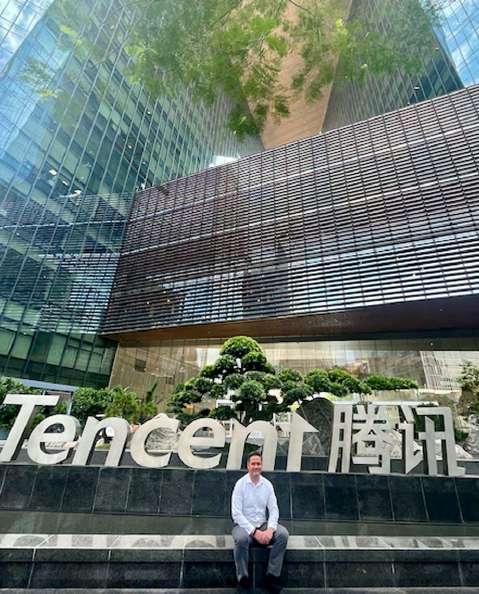
David at Tencent Headquarters in Shenzhen
balance would be much harder to achieve in many other global cities.
OTHER THAN WORK AND FAMILY, WHAT ARE SOME OF YOUR INTERESTS WHICH YOU MANAGE TO FIND TIME FOR?
Travel is something I really enjoy, especially short trips around the region. In particular, I’ve found exploring the Greater Bay Area by high-speed rail to be both interesting and convenient. Cities like Shenzhen, Guangzhou, and Zhuhai each offer a different perspective on how the region is evolving, and the ease of access from Hong Kong makes it possible to explore without much planning.
They also reinforce just how strategically positioned Hong Kong is within this fast-growing corridor. The connectivity, infrastructure, and proximity to innovation hubs across the Mainland make it clear that Hong Kong remains a critical gateway, and not just in theory, but in everyday experience. That’s something I’ve come to appreciate even more through travel.
Last month I had the great pleasure of speaking at a seminar in Hong Kong on the jurisdiction’s new cybersecurity law. The Protection of Critical Infrastructures (Computer Systems) Ordinance is a recently enacted law which comes into force at the beginning of next year. It was formulated, and passed, to put into place mechanisms to regulate the operation, management, and critically the security obligations applicable to any organisation responsible for a computer system in Hong Kong which has been specified to be a “critical infrastructure” (namely a system which, if it was to be disrupted or destroyed then that disruption could have a negative impact on life in Hong Kong).
Such systems will be designated by a newly appointed Commissioner of Critical Infrastructure and by appointed Designated Authorities, which initially will comprise the Hong Kong Monetary Authority and the Communications Authority. Organisations will be notified if they are deemed responsible for a critical infrastructure system and therefore




subject to the law’s provisions, but the identity of critical infrastructure providers will not be made public in order to protect their security (although it should be possible to guess who at least a few of them are with a bit of common sense and given the identity of the first appointed Designated Authorities).
Fines for noncompliance with the law can be up to HK$5,000,000, which is lower than you might find in comparable jurisdictions but the highest to date in Hong Kong for an IT focused law.
At the seminar I spoke about how this legal development was much needed in Hong Kong. Whilst we already have a Hong Kong data protection law in the form of the Personal Data (Privacy) Ordinance, it is a long way away from the EU’s GDPR, Mainland China’s Personal Information Protection Law, and many other established data protection laws across Asia. The new Hong Kong law intro duces requirements which have not been seen in Hong Kong law before, such as a mandatory legal obligation to conduct


security drills and risk assessments, and to notify of a security incident within 12 hours of becoming aware of it.
My tech background means I’m a big supporter of cybersecurity and data protection laws; and in fact, I’ve been advocating that we need updated and revised data protection laws in Hong Kong for as long as I have lived here.
But the impact of the new in-housees that that cybersecurity becomes a major concern in Hong Kong not just for any organisation’s technology departments, but also for its staff and in house lawyers. Failing to properly prepare for and respond to a cyberattack could be a breach of the law. My concern however is that many organisations, in Hong Kong and unfortunately worldwide, are woefully equipped to deal with a cyberattack when it takes place.
operations is one thing, but when one takes into consideration the possible financial loss, reputational damage, and the potential fines imposed by an applicable regulator if mistakes are made in the response to the attack, then the potential repercussions quickly become daunting.

A cyberattack, even an unsuccessful one, can be an organisation’s worst nightmare. The disruption it may have on business

If a cyberattack is successful, then the ramifications will typically be even worse. By way of an example, a major British retailer recently suffered a severe cyberattack which disrupted its online systems for months, resulted in the loss of customer personal data, left it with empty store shelves and caused estimated losses equivalent to a 30% hit to its profits. This was orchestrated via a social engineering attack on one of the company’s contractors, a threat vector often taken advantage of by cybercriminals. Needless to say, an attack on a clothing and food retailer is significant, but a similar attack on a power station, or airport, or hospital could have a truly catastrophic or potentially fatal result.


Having been personally involved as external counsel responsible for assisting in responding to data breaches and cyberattacks, working with a company’s legal team, IT department, Chief Information Officer and Chief Information Security Officer (if it has one), I’ve noticed that it is often the legal department which gets involved in the brunt of coordinating and responding to an attack. A general counsel can often be required to manage multiple roles in the response, and many businesses, especially smaller enterprises who may not have the resource to invest in major cybersecurity systems, may be woefully prepared to act when an attack, or heaven forbid a successful data breach takes place.
This means that in house counsel often has to take a lead role and coordinate not just their legal response but also oversee the IT team, manage public relations, possibly deal with law enforcement bodies and work with any cybersecurity experts they enlist either within or outside their organisation. In the case of a ransomware attack counsel might even find themselves negotiating with whoever was behind the cyberattack.
Doing this successfully requires training, experience but most often both. I remember my first engagement on a suspected data breach. It was exhilarating (especially for a nerdy technology lawyer such as myself!) but it was also intense, taking in not just legal issues but practical ones of identifying threat vectors, determining when to notify affected parties, considering how to manage IT teams, liaising with regulators, dealing with the attackers, managing the public response, and ultimately seeking to ensure it is not repeated. Complying with any cybersecurity law such as Hong Kong’s new Protection of Critical Infrastructures (Computer Systems) Ordinance will involve the same. The issue is
that lawyers (whether in private practice or in-house) are not often trained to deal with cybersecurity challenges, and I fear this is especially true in jurisdictions outside of the US and Europe.
So, what to do? Well, it’s not actually that difficult to find technology experts willing to provide advice or give crash courses on breach response and cybersecurity, and there are many tech, data and cybersecurity firms who will provide training on breach response to organisations or carry out a simulated data breach or cybersecurity incident you can take part in. There are also plenty of lectures, seminars and events that you can attend to learn more about cybersecurity and breach response: your CIO or CISO if you have one will likely be able to point you in the right direction but if not, there are plenty of online resources too.

The thing is, partaking in these won’t just help you comply with data protection and cybersecurity laws and protect your organisation, but it will also make you less likely to fall victim to online scams and data breaches yourself. Given that Microsoft estimated last year that its users face 600 million cyberattacks per day, it would be time well spent.
Paul Haswell is a partner at Howse Williams in Hong Kong, specialising in Technology Transactions and Sourcing. With over 20 years of experience, he focuses on TMT matters, including data and cybersecurity, telecommunications, and emerging technologies like AI and blockchain. A tech enthusiast since childhood, Paul has handled major technology disputes and offers a blend of legal expertise and passion for innovation.
Outside of his legal work, Paul is a tech and law podcaster and a DJ. He co-hosts the “Sunday Escape” radio show on RTHK and the podcast “Crimes Against Pop.” A music lover with an extensive vinyl collection, Paul enjoys discovering and sharing new music. He’s also a sci-fi fan, particularly of “Doctor Who.”


For a decade, numerous bills and guidelines have been introduced globally to regulate artificial intelligence (AI). In Thailand, the significance of AI has been increasingly recognized through various government initiatives, including the National Economic and Social Development Plan, the National Artificial Intelligence Operational Plan for Advancing the Development of the Kingdom of Thailand, and the Generative AI Governance Guideline issued by the AI Governance Center (AIGC), a unit under the Electronic Transactions Development Agency (ETDA). These efforts collectively reflect the Thai government’s commitment to
establishing a regulatory framework for the use of AI within the country.
The most recent and notable development is ETDA’s proposal of a draft regulatory framework on AI (the “Draft Framework”). Set out below is a summary of the Draft Framework along with its key takeaways.
The foundations of the Draft Framework are anchored in the following core principles:
1. De-regulation of AI-related business activities;
2. Promotion of innovation; and 3. Establishment of AI governance.
We have observed these principles being reflected in the Draft Framework, the details of which are outlined below.
The Draft Framework adopts an approach influenced by the EU’s risk-based model. Specifically, the Draft Framework classifies AI-related activities based on the level of risk they may pose, with two principal categories identified: High Risk and Unacceptable Risk activities.
Under the Draft Framework, the competent regulator—or, where applicable, specific sectoral regulators—is delegated with the authority to establish the criteria for classifying AI systems as either High Risk or Unacceptable Risk.
For businesses regulated by specific sectoral regulators, those authorities will determine the applicable risk classifications and compliance frameworks. On the other hand, for businesses that do not fall under a sectoral regulator’s supervision, the central regulator designated under the Draft Framework may assume this role, including the authority to issue subordinate regulations.
Although the specific classification criteria have not yet been disclosed, parallels can be drawn with the EU AI Act—formally known as Regulation (EU) 2024/1689 that provides a comprehensive legal framework for artificial intelligence (AI) within the European Union. Under the EU AI Act, High Risk activities include those that may impact critical infrastructure, legal enforcement, creditworthiness evaluation, etc., while Unacceptable Risk encompasses activities such as manipulative AI or real-time biometric identification.
A foreseeable challenge under this riskbased approach lies in the classification of activities according to their risk level. This challenge, however, could be mitigated by clear and consistent guidelines from the relevant authorities.
The Draft Framework outlines several measures to foster the growth of Thailand’s AI-based industry. Specifically, it includes provisions on text and data mining, the establishment of a regulatory sandbox, and other supporting mechanisms such as policy instruments and budgetary management tools. These initiatives reflect the authorities’ intent to strike a balance between regulating AI and promoting innovation.
The Draft Framework outlines the obligations of parties involved in AI-related activities. Notably, it specifically designates responsibilities for AI providers and deployers. Moreover, the extent of these obligations for each party corresponds to the degree of risk associated with the AI system, as determined under the law. Notwithstanding the current provisions under the Draft Framework, it is worth noting that the EU’s AI Act also imposes obligations on importers and distributors of AI-related services and products.
Under the current draft, the High Risk AI Providers—individuals or entities that develop AI systems—are required to adopt internationally recognized risk management frameworks, appoint a local legal representative, and implement governance mechanisms, including human oversight, record-keeping, and incident notification.

Likewise, the Draft Framework also sets out the responsibilities of High Risk AI Deployers, parties using AI systems under its authority. These obligations include maintaining internal controls to ensure transparency, accuracy, and fairness, providing users with information regarding the use of AI, retaining the ability to explain and review automated decisions, and cooperating with investigations conducted by regulators and sector-specific authorities.
With respect to violations of the obligations mandated under the Draft Framework, the draft sets out liability provisions for both High Risk and Unacceptable Risk AI providers and deployers. In the event of non-compliance,
these parties may be subject to oversight and enforcement actions, which may include:
1. Regulatory orders to suspend or cease the relevant AI activities;
2. Blocking of services by Internet Service Providers (ISPs); and
3. Platform takedowns of non-compliant AI services.
Nonetheless, the draft has not yet clarified which punitive mechanisms—such as criminal liability, tort claims, or loss of subsidies— may apply in the event of a breach of duties.
An important feature of the Draft Framework—particularly relevant to foreign
investors and multinational AI providers—is its extraterritorial application. The Draft explicitly applies to High Risk AI systems that are developed, hosted, or operated outside of Thailand but used or deployed within the country. This approach mirrors elements of the EU’s GDPR-style extraterritorial enforcement, reflecting Thailand’s intent to ensure that offshore High Risk AI providers are subject to the same regulatory treatment as domestic providers.
A foreseeable challenge to this approach lies in enforcement, particularly in scenarios involving cross-border access through Virtual Private Networks (VPNs), which may raise potential concerns around jurisdictional clarity and regulatory reach.
Thailand’s Draft Framework is not just about setting regulatory boundaries—it reflects a broader national intent to position Thailand as a credible, ethical, and competitive player in the AI economy. The Draft Framework presents the country’s strategic opening: a jurisdiction with a solid regulatory anchor, yet enough flexibility to encourage innovation and growth. As AI becomes a cornerstone of digital competitiveness, jurisdictions that strike this balance will likely attract both capital and talent. Thailand, it appears, is preparing to be one of them.
For investors and founders, the Draft Framework offers a glimpse into the future direction of Thailand’s regulatory approach to AI-related businesses. We believe that these principles not only provide greater clarity on how to engage with the AI sector but also highlight promising opportunities—particularly in relation to incentive and subsidy mechanisms aimed at supporting innovation. Moreover,
preparing internal compliance frameworks in advance is strongly encouraged for the stakeholders as the proactive alignment with these regulatory expectations will help position businesses for smoother market entry and long-term growth in Thailand’s evolving AI landscape.
For more information, please get in touch with our authors or visit www.kap.co.th
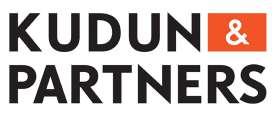

Chai Lertvittayachaikul, Partner, Kudun & Partners
Chai has over 16 years of experience advising clients on corporate transactions, M&A, and project development, with a growing focus on emerging technologies and AI. He has recently advised on high-profile deals in the digital infrastructure space, including timeDotcom’s divestment of AIMS Data Centre (Thailand) to DigitalBridge. Chai regularly guides technology and telecom clients through complex regulatory, structuring, and investment matters, offering commercially driven legal solutions in a fast-evolving digital landscape.

. Panupong Wongmueang, Associate, Kudun & Partners
Panupong is an associate with over five years of experience in corporate, M&A, and project development. He advises both listed and private clients on asset and equity acquisitions, business restructuring, and joint ventures. His recent work includes advising on investments in the technology, digital infrastructure, and emerging tech sectors, with a growing focus on regulatory and transactional issues related to AI and data-driven businesses.

When Fred Grysolle joined a recent meeting at OCP Asia, he was not there to talk about contracts or compliance checklists. Instead, the legal counsel found himself fielding questions about machine learning models, data classification protocols, and how investor data was being used for compliance insights. “At some point,” he recalled, “someone turned to me and said, ‘Wait, aren’t you part of legal?’”
He smiled and answered, “Yes. And legal is data now.”
That exchange captures a quiet but profound transformation in the in-house legal sector. No longer confined to reviewing or
reacting, lawyers are expected to be strategic data stewards, AI ethicists, technology translators and architects of responsible innovation.
AI is no longer a theory. It is already unlocking remarkable levels of productivity from legal teams, which were once seen primarily as cost centres or compliance guardians. For Amir Dar, General Counsel and Director of Legal Affairs at adtech firm Anzu.io, the most immediate gains from AI tools are in contract lifecycle management (CLM) systems.
“A well-implemented CLM system can significantly streamline a company’s processes. By embedding legal-tech workflows into functions like procurement, finance and

A well-implemented CLM system can significantly streamline a company’s processes. By embedding legaltech workflows into functions
engineering, we are reducing friction and cycle time by quite a lot,” Dar said.
AI-driven automation is also transforming the contract approval process, as automated workflows replace manual reviews, Dar added.
“This use ensures contracts are processed swiftly and accurately, while deadlines and obligations can be monitored with automated reminders. It also reduces the time spent searching for information and improves the accuracy of decision-making,” he said.
The results speak for themselves.
“Done right, implementing a CLM system will increase service efficiency by up to 45% to 50%,” Dar said. However, he warns that this efficiency should not come at the expense of control.

vLex Head of Business APAC Daniel Hobson agreed that AI in the legal industry can offer huge boosts to daily work effort, especially for repeatable, time-consuming tasks.
“Things like contract review are perfect for AI. You can save so much time by becoming the checker of an AI’s work rather than doing the heavy lifting of a first-round review. Likewise, in-house teams deal with a wide range of topics, and it’s challenging to be an expert on all of them. Quick access to accurate legal summaries by AI can be really helpful,” Hobson said.
While automation is a theme for AI technologies, at Doctor Anywhere, a fast-growing healthtech company operating across Southeast Asia, General Counsel Gladys Chun said AI is also

I have become a strategic data steward, helping my company navigate responsible use of clinical insights, digital health records and patient data
pushing her responsibilities far beyond traditional legal risk management.
You can save so much time by becoming the checker of an AI’s work rather than doing the heavy lifting of a firstround review
“As AI takes on routine legal and compliance analysis, my role is evolving into that of a strategic partner. I have become a strategic data steward, helping my company navigate responsible use of clinical insights, digital health records and patient data,” Chun said.
As with any new technology, the biggest challenge is knowing where to start, said Microsoft UAE’s Ali Haidar. His company began with the low-hanging fruit: putting AI to work on existing

We also deployed self-service AI tools to speed up responses to routine inquiries, freeing up our lawyers for more complex work
tools. This involved setting up knowledge-sharing hubs, prompt libraries and resources on SharePoint and Teams to make AI tools accessible and practical.
“We launched a two-month Copilot skilling series that led to a 50% increase in tool usage. Recognition programmes for early adopters generated enthusiasm and reduced resistance. We also deployed self-service AI tools to speed up responses to routine inquiries, freeing up our lawyers for more complex work,” Haidar said.
PayPal Head of Legal for APAC and MEA, Lynette Ooi, said you can’t just introduce a tool and expect people to embrace it. You must walk the journey with them.
Like Haidar, Ooi leads her company from the front, enrolling in online courses on AI and legal

tech, hosting internal education sessions, and speaking publicly about the opportunities AI offers for legal teams.
“We have set up regular touchpoints to discuss pain points, gather feedback and ensure people feel heard. We’re not trying to push these tools; we’re building a culture where people feel safe to experiment, question and learn together,” Ooi said.

If you were open to learning, you saw the opportunities of AI, not just the challenges
Knowing about AI is one thing; knowing how to operate it is quite another.
For Ben Bury, Group General Counsel at Gammon Construction Limited in Hong Kong, the key to learning about new things is being a team player and a problem solver, someone who asks, “How can I help?” instead of saying, “That’s not my job.” An adaptive mindset matters far more than technical mastery, he said.
We’re not trying to push these tools; we’re building a culture where people feel safe to experiment, question and learn together
“If you are open to learning, you see the opportunities of AI, not just the challenges,” Bury said.
This sentiment was echoed by Anthony Luna, who leads legal operations for IBM in Japan. While lawyers aren’t expected to become data scientists, a basic understanding of data governance and AI functionality is crucial.
“The future will not reward academic knowledge alone. It will reward those who lead with purpose, deliver concrete results and make values-based decisions in a data-driven world. AI is going to be a big part of that,” Luna said.

It will reward those who lead with purpose, deliver concrete results and make values-based decisions in a datadriven world
The learning shift is already underway at Lawyers On Demand (LOD), where Managing Director Brett Menadue are building legal teams for a digital-first environment.
“We are focused on building a team that is legally sharp, tech-savvy and adaptable. The legal industry is undergoing a rapid digital transformation, and we want lawyers who are excited to be part of that shift. We prioritise skill sets such as AI literacy, cybersecurity awareness, data privacy expertise and the ability to work cross-functionally with all business stakeholders, including product and tech teams.
Ingenico’s General Counsel for APAC, Joanne Chuang, said there are three pillars for legal upskilling in the age of AI: business and cultural intelligence, AI and tech proficiency, and strategic project leadership. She said lawyers must find a way to tailor their approach to different business cultures while also mastering these new tools of the trade.
“It’s not enough to understand AI at a basic level, although that’s important. Lawyers must also develop prompting skills, manage CLM platforms, design automated workflows and understand legal data analytics,” Chuang said.

Lawyers must also develop prompting skills, manage CLM platforms, design automated workflows and understand legal data analytics
“Lawyers who can navigate data governance, understand the risks of large language models, or even write effective prompts for AI are already delivering real value,” Menadue said.

Brett Menadue, Lawyers On Demand
It was less about credentials and more about how well someone could apply tech-forward skills to drive better, faster, and smarter outcomes for our clients
He added that the number of certificates a person owns is not nearly as important as how those skills show up in practice. For example, can the lawyer help a client’s in-house legal team by increasing its operational efficiency, spotting risks earlier in tech-heavy transactions and building compliance frameworks that are also commercially viable?
“This is the kind of impact we measure, and the kind of talent we’re excited about. To put it pragmatically, it’s less about credentials and more about how well someone can apply tech skills
to drive better, faster and smarter outcomes for clients,” Menadue said.
“As AI continues to evolve, so too must the legal professionals who work alongside it. We are building teams that are ready to lead that change,” Menadue said.
At global law firm Eversheds Sutherland, partner Frankie Tam sees the same trajectory. She said the single most transformative AI-enabled capability for legal departments is in secure and autonomous legal workflow orchestration, including the ability for AI agents to manage, triage, and execute legal tasks across the contract lifecycle with minimal human intervention.
“We’ve noticed several ethical and operational risks as AI becomes more relevant to client work. The major ones, so far, are accuracy, accountability and oversight. We have robust internal policies and protocols in place to ensure that any AI-generated content is thoroughly reviewed and scrutinised before it reaches our clients.
“Broadly, however, we also predict shifting professional norms and client demands. We work with clients to set clear expectations, maintain transparency and ensure that AI augments, rather than replaces, the human judgment and relationship-building that defines our profession,” Tam said.

Tam added that there are three core areas where lawyers should focus: 1) understand how AI tools works and how to use them effectively to ensure tasks are completed efficiently and accurately; 2) build other skill sets, so that lawyers embrace their “trusted advisor” roles with multi-disciplinary knowledge; and 3) enhance the “human touch,” i.e. relationship building, empathy and ethical reasoning.

Lawyers needed to understand how AI worked and how best to harness it. But they also had to be aware of its limitations
But transformations are never seamless. Paul Haswell, a partner at Howse Williams in Hong Kong, cautioned against over-relying on AI tools or placing blind trust in vendor promises.
We had robust internal policies and protocols to ensure that any AIgenerated content remained subject to close attorney scrutiny before it reached our client
“Lawyers should understand how AI works. But they should also be aware of its limitations. Legal systems differ in procedure, and while AI tools will eventually be better at distinguishing between these when giving outputs, we don’t have those tools yet. Remember, AI is a complement, and it’s easy to become too reliant on it and send everything into the prompt,” Haswell said.
He said lawyers should excel in skills that AI cannot perform, such as winning over stakeholders and clients (both internal and external). Essentially, lawyers should focus on the human aspects of legal work, while AI handles much of the rest. AI tools are becoming commonplace, and many providers are springing up, some of which might not be around for long. When
investing in AI solutions, don’t be blinded by the sales pitch, Haswell said.
“Lawyers should also look at other parts of the organisation. How much of the company is already using AI, and should the legal department be taking the lead? Could colleagues use AI in ways that might get the organisation into hot water? How much budget should be allocated to AI? And what might be its impact on both your in-house and external counsel?
“We are a long way from coherent regulation, and while some locations are proactively embracing opportunity (such as in Singapore), others are waiting to see how regulation may restrict or promote AI use. I doubt we will see universal agreement in Asia – or anywhere – on the regulation of AI. So, we must ensure we are embracing and benefitting from AI in the meantime,” Haswell said.
Many commentators said that while AI is unlikely to eliminate lawyers completely, it will likely render the purely reactive lawyer obsolete.
The transformative potential of AI has already piqued the interest of legal departments across the Asia-Pacific, according to Nathan Hughes, Regional Director for APAC at legal services provider Consilio. Everyone is actively looking for clever ways to capitalise on the technology, he said.
“In-house legal teams are interested in AI for its potential to automate things like document review and contract management. Another area of interest is the ability for AI to provide insights and analytics on large volumes of data, enabling the identification of trends and informing decision-making. These capabilities will enhance strategic planning
and risk management while reducing legal spend,” Hughes said.
He added that while legal teams look to integrate AI solutions with their existing systems and workflows, they are also emphasising data security and are cautious about the risk of exposing their sensitive data. Therefore, AI solutions that offer robust security and data handling are highly sought after, he said.
“There’s also a cautious approach to adoption. Legal teams want solutions that offer transparency in AI decision-making and allow for human oversight to ensure the quality and integrity of legal work,” Hughes said.
Oversight and accountability for AI are also priorities for Frankie Tam, who said that lawyers must be transparent with clients about when and how AI may have been used in the delivery of legal services. The key is to ensure its use always enhances rather than replaces human judgment, Tam said.
“The trust that defines our profession must be preserved as we adopt these new tools. We have put strict policies in place to ensure that all AI-generated content is subject to attorney review before being shared with clients. But more broadly, we anticipate a big shift in professional norms due to this technology,” Tam said.
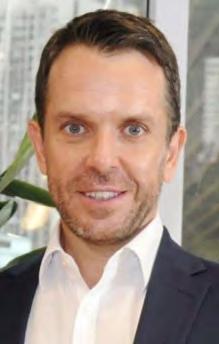
Legal teams want solutions that offer transparency in AI decision-making and allow for human oversight to ensure the quality and integrity of legal work

I would love to be able to advise the business proactively, rather than cleaning up after the fact. I predict AI will help enormously here
Overall, the regulatory landscape is struggling to keep pace with AI.
Eversheds Sutherland partner Frankie Tam noted that while AI regulations in Asia are rapidly evolving, they remain highly fragmented.
“We are responding to these challenges in two ways: maintaining a dynamic regulatory tracker within our firm and regularly publishing updates to help clients stay ahead of rules, particularly concerning Mainland China, Hong Kong and Singapore.
“We are also helping clients implement pragmatic, scalable AI governance structures by focusing on uplifting their technology risk assessment toolkits (including third-party risk management questionnaires), internal AI policies, AI contractual provisions and audit protocols,” Tam said.
Federico Fabiano, Head of Legal, Compliance, and Company Secretary at Hex Trust, discussed a near-future scenario in which AI autonomously scans legislative updates, flags relevant changes and produces recommendations without human intervention.
“Today, legal teams pour huge amounts of time into manually reviewing regulatory frameworks. However, if I knew in real-time that our company was approaching a regulatory or contractual trigger, I would love to be able to advise the business proactively, rather than cleaning up after the fact. I predict AI will help enormously here,” Fabiano said.
The question is: how can a system with that kind of predictive power be regulated effectively?
Legal professionals are wondering the same thing. They are collectively watching closely for draft legislation and regulatory guidance on AI. But while these frameworks take shape by regulators, forward-thinking in-house lawyers are already adapting.

One of the biggest blind spots I saw was the assumption that general data compliance automatically covered AI use cases. It did not
Fred Grysolle, OCP Asia
“I’m mapping AI-related developments jurisdiction by jurisdiction,” said in Singapore. “One of the biggest blind spots I see is the assumption that general data compliance automatically covers AI use cases. It does not.”
To stay current on the new rules, Grysolle said lawyers should be regularly speaking with local lawmakers to anticipate what might be coming down the pipeline. He also advised pre-empting any compliance requirements by embedding all relevant points from design through to deployment.
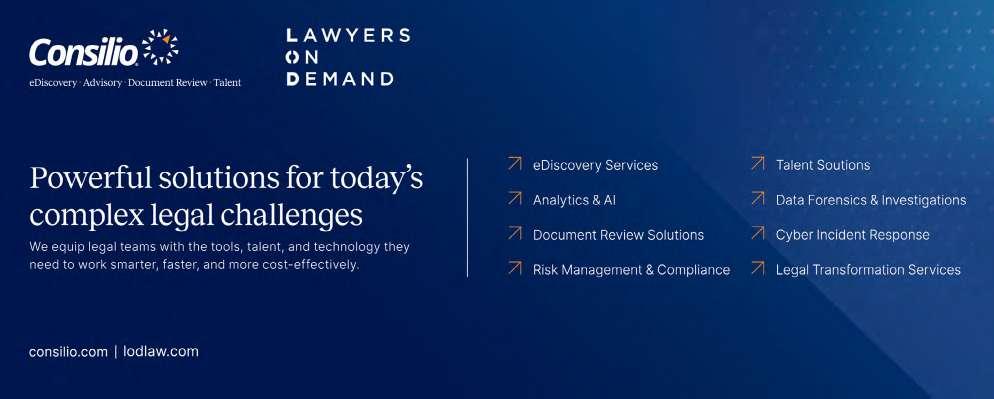
Consilio is a global legal services provider that helps corporate legal departments and law firms reduce cost, improve efficiency, and manage risk across both large-scale matters and everyday operations.
With more than 5,000 professionals across the US, Europe, the Middle East, Asia, and Australia, Consilio offers integrated solutions spanning eDiscovery and investigations, legal operations consulting, technology implementation, and strategic outsourcing. Consilio is ISO\IEC 27001:2013 certified and has data centers across Europe, Asia, North America and Australia.
Through Consilio’s Lawyers On Demand (LOD) business, they provide flexible legal talent to help clients scale their teams quickly and cost-effectively — whether for secondee-style placements, project-based support, or longer-term resourcing needs. This capability is a core part of Consilio’s end-to-end service model and supports clients looking to increase agility without compromising quality.
Their services are trusted by the world’s leading corporations and law firms, supported by industry-leading technology and deep expertise across every stage of the legal lifecycle.
Discover more about Consilio’s commitment to legal excellence and innovation at www.consilio.com.
Such an embedded approach is central to the AI governance model implemented by Anzu. io, where General Counsel Amir Dar stated that regulations, such as the EU AI Act, GDPR, and CCPA, are setting high standards for other regulators to follow.
“First, these regulators are saying that all data used for AI must be anonymised and encrypted. Second, strict access controls must ensure that only authorised personnel can view sensitive information. Third, it’s important to provide regular training for anyone working with generative AI tools so they understand their risks and responsibilities,” Dar said.
Eversheds Sutherland partner Frankie Tam expects any future regulations will focus on two major areas: allowing innovation to flourish while also creating safeguards that are realistic, scalable and aligned with business priorities.
But the overall compliance challenge will be especially acute for businesses operating across multiple jurisdictions.
“We’re not going to see a single set of global AI standards anytime soon. So, internal policies need to be flexible enough to adapt locally but strong enough to set consistent ethical guardrails across the organisation,” Grysolle said.


The Asia-Pacific legal landscape is undergoing a technological revolution. Cloud solutions and AI-powered tools are rapidly transforming how legal professionals approach cross-border disputes and complex investigations. At the recent Relativity Asia Roadshow in Hong Kong, industry experts shared their first-hand experiences navigating these changes and offered practical insights for legal teams facing similar challenges.
The panel, moderated by Benjamin Ng, Senior Account Executive at Relativity, featured distinguished speakers including Michael Mo, Partner at Deloitte Hong Kong; Joyce Li, Senior Director at Ankura; and Matt Lan,
Senior Manager at Baker McKenzie’s Global eDiscovery and Data Advisory team.
Accelerating Efficiency Through Cloud-Native Processing
The shift from traditional processing methods to cloud-based platforms has dramatically altered the speed and efficiency with which legal teams can handle complex cases. Mo highlighted common pain points that many firms have overcome: slow throughput, cumbersome processes between different platforms, and technical failures.
“We previously used processing tools that gave us roughly 15 to 20 gigabytes per hour. When
we moved to Relativity Processing, it significantly boosted our speed and reduced overhead,” Mo said.
Cloud solutions have proven especially effective for firms looking to scale while maintaining high security standards. Beyond operational gains, cloud environments remove the need for managing physical infrastructure and offer significant savings on hardware and technology upgrades. Legal teams are increasingly shifting focus from infrastructure maintenance to strategic analysis and investigative work.
For security-conscious clients, cloud solutions offer additional comfort. Lan explained how Baker McKenzie’s adoption of cloud technology about 18 months ago has transformed client interactions: “In certain instances, the cloud allows us to use clients’ environments to push data directly to our cloud environment, rather than bringing it into our infrastructure first.”

state enterprises in China. For clients with heightened security needs, firms are offering flexible solutions, including on-premise deployments when necessary.
Despite the clear operational benefits of the cloud, security remains the foremost concern for organisations considering cloud-based solutions in Asia. The roadshow panellists shared various approaches to address these concerns, with most firms adopting multi-layered security strategies.
International certifications form a foundational element of these strategies. Deloitte, for example, maintains ISO certification and the Cybersecurity Protection Certification Scheme (CPCS) required for working with
Li emphasised the importance of technical solutions like Customer Managed Keys and client domains, while acknowledging the critical role of partnering with a vendor with a proven security posture. Relativity’s Calder7 security team, for example, has helped Ankura’s team overcome client concerns. “Relativity dedicates a significant percentage of revenue to security initiatives, creating a highly secure environment,” Li explained. “These collaborative efforts help us convince clients and make them more comfortable with cloud adoption.”
The good news, according to Lan, is that as cloud adoption increases, organisations are more prepared to handle security concerns: “Most of our clients are on cloud themselves,

so I feel like cloud adoption has passed a certain threshold. Security questions are addressed more quickly and simply now.”
Practical day-to-day challenges in data collection remain, especially as legal teams encounter a growing variety of file types and messaging platforms. Tools that can process formats from platforms like WeChat—where data includes audio clips, screenshots, and attachments—are critical. A robust platform that can accommodate multilingual, multimedia data sets significantly streamlines investigations.
In Asia’s diverse legal landscape, one of cloud technology’s most valuable contributions is standardising workflows across jurisdictions. Cross-border cases involving multiple locations can now operate on the same platform, with data moving smoothly between regions as needed.
This standardisation extends to deduplication across jurisdictions, a crucial capability when working with countries that have different export constraints. As Mo explained, “We can share hash values without sharing the data itself, allowing review of copies outside restricted jurisdictions.”
Thought leaders emphasise the importance of asking region-specific questions about capabilities: Has the technology been tested for Chinese, Japanese, and Korean languages? How effective is prompting in these languages?
For global firms like Baker McKenzie, standardised cloud platforms enable their worldwide teams to work seamlessly across different geographies. “It allows us to provide the same advice to the same client, even when dealing with them in different geographies,” noted Lan.
Introducing AI capabilities to clients remains a gradual process for many firms. Li described how Ankura begins with basic analytics tools like email threading before moving to more advanced capabilities such as machine translation and technology-assisted review. Client confidence builds as they see concrete results from practical applications.
Industry leaders are approaching generative AI with strategic caution. Panellists and attendees expressed optimism about its potential while acknowledging implementation challenges specific to the region. A Deloitte representative noted their exploration of local LLM deployment for their Navigate solution has proven difficult. They recognise that offering generative AI capabilities quickly may require routing through other locations, showing openness to this approach given that client data can be hosted overseas if necessary. The critical decision point remains with clients, who must approve the ephemeral transmission of their data.
Testing and communicating with AI vendors is paramount, particularly for ensuring effective functionality with Asian languages. Thought leaders emphasise the importance of asking region-specific questions about capabilities: Has the technology been tested for Chinese, Japanese, and Korean languages? How effective is prompting in these languages? These considerations are crucial for ensuring AI solutions meet the specific needs of the Asian market, where linguistic complexity creates unique challenges for document review technologies.
In time-sensitive disputes—particularly on the defence side where parties often have little time to prepare—AI allows investigators

to work backward from the desired outcome and target relevant documents faster. One professional provided the recent example of reducing document volume from 200,000 to just 200 for court submission, demonstrating the strategic application of AI review.
Panellists expressed enthusiasm about generative AI’s potential to transform legal review processes. Lan compared the current moment to the emergence of technology-assisted review a decade ago: “It will be interesting to see how it affects turnaround times, billing models, and client expectations.”
For firms operating in mainland China, the ideal future includes AI tools that can streamline compliance reviews across multiple regulatory frameworks simultaneously. The ability to identify all sensitive information in a single review cycle would dramatically improve efficiency while ensuring compliance with China’s complex regulatory landscape.
Platforms like Relativity aiR offer not only smarter review but could eventually assist in suggesting investigation strategies based on uploaded data. When implemented thoughtfully, generative AI has the potential to be a game changer—bringing clarity, speed, and insight to investigations and disputes alike.
As cloud adoption and AI implementation continue to accelerate across Asia, legal professionals who embrace these technologies will be best positioned to handle the increasingly complex challenges of cross-border disputes and investigations in this diverse and rapidly evolving region.
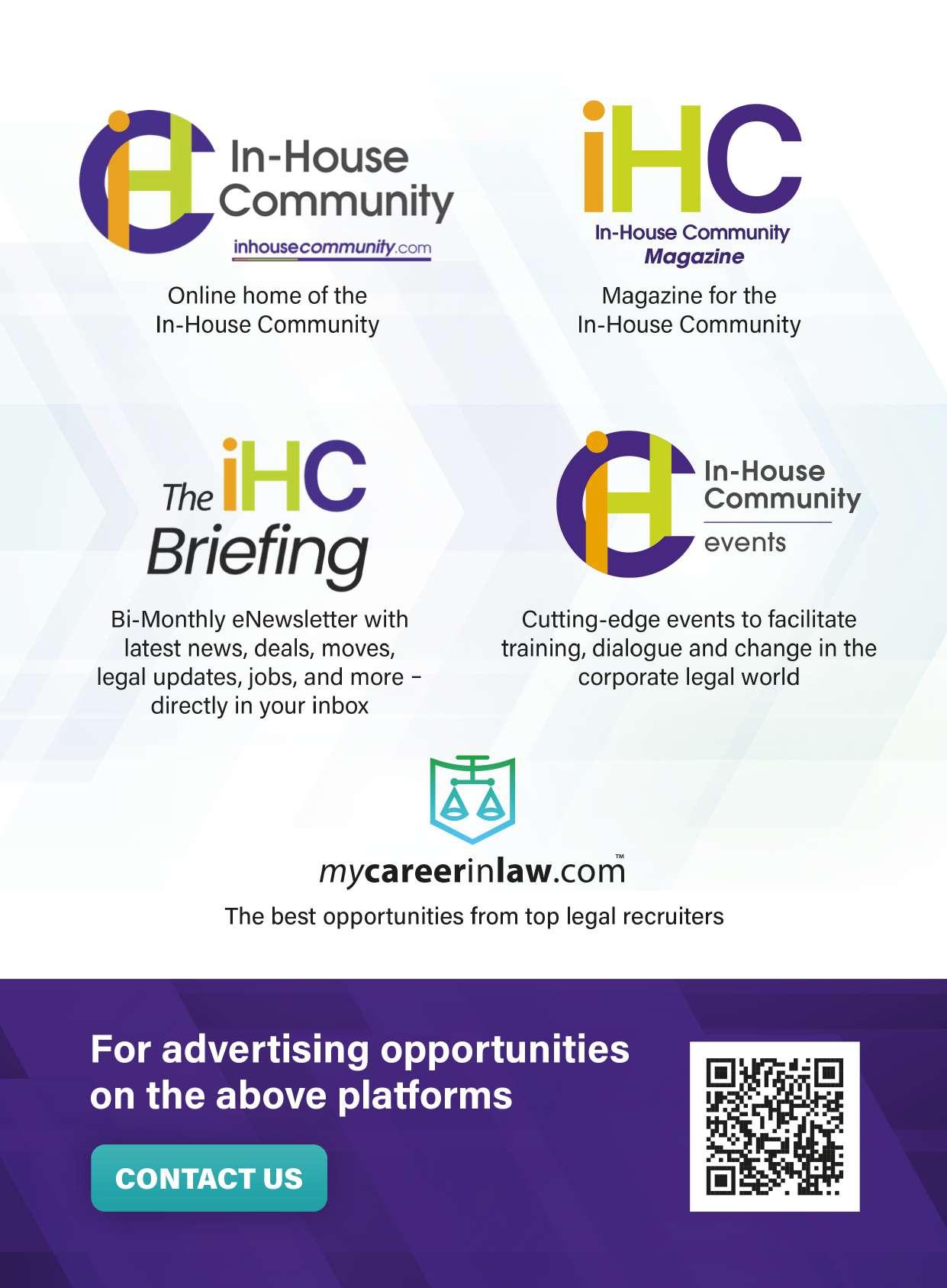
Your ‘at a glance’ guide to some of the region’s top service providers.
Practice Area key
Alt’ Investment Funds (inc. PE)
Antitrust / Competition
Broad & Bright
Tel: (86) 10 8513 1818
Email: broadbright@broadbright.com
Contact: Mr Jun Ji (Jun_ji@broadbright.com)
Website: www.broadbright.com
COM • CMA • ENR • LDR • TMT
East & Concord Partners
Tel: (86) 10 6590 6639
Email: Beijing@east-concord.com
Contact: Mr. Dajin Li Website: www.east-concord.com
BF • CM • CMA • IP • LDR
Llinks Law Offices
Tel: (86) 21 31358666
Email: master@llinkslaw.com
Website: www.llinkslaw.com
BF • CM • CMA • INV • LDR
W. K. To & Co.
Tel: (86) 10 8587 5076
Email: wktoco@wktoco.com
Contact: Cindy Chen
Website: www.wktoco.com
CMA • E • LDR • RE • REG
Conyers Dill & Pearman
Tel: (852) 2524 7106
Email: hongkong@conyers.com
Contact: Christopher W.H. Bickley, Partner, Head of Hong Kong Office
Website: www.conyers.com
BF • CM • CMA • INV • LDR
Elvinger Hoss Prussen
Tel: (852) 2287 1900
Email: xavierlesourne_hk@elvingerhoss.lu
Contacts: Mr Xavier Le Sourne, Partner, Ms Charlotte Chen, Counsel Website: www.elvingerhoss.lu
* Elvinger Hoss Prussen’s Hong Kong office provides inbound and outbound legal services only under Luxembourg law
BF • CM • CMA • INV • TX
W. K. To & Co.
Tel: (852) 3628 0000
Email: mail@wktoco.com
Contact: Vincent To Website: www.wktoco.com
CMA • E • LDR • RE • REG
Anand and Anand
Tel: (91) 120 4059300
Email: pravin@anandandanand.com
Contact: Pravin Anand - Managing Partner Website: www.anandandanand.com
IP • LDR
Litigation & Dispute Resolution
Maritime & Shipping
Projects & Project Finance (inc. Infrastructure)
Real Estate / Construction
Restructuring & Insolvency
Taxation
Telecoms, Media & Technology
Clasis Law
Tel: (91) 11 4213 0000, (91) 22 4910 0000
Email: info@clasislaw.com
Contacts: Vineet Aneja, Mustafa Motiwala Website: www.clasislaw.com
CMA • E • LDR • REG • RES
ABNR (Ali Budiardjo, Nugroho, Reksodiputro)
Tel: (62) 21 250 5125/5136
Email: info@abnrlaw.com infosg@abnrlaw.com
Contacts: Emir Nurmansyah, enurmansyah@abnrlaw.com) Nafis Adwani, nadwani@abnrlaw.com Agus Ahadi Deradjat, aderadjat@abnrlaw.com Website: www.abnrlaw.com
BF • CM • CMA • ENR • PF
Makarim & Taira S.
Tel: (62) 21 5080 8300, 252 1272
Email: info@makarim.com
Contact: Lia Alizia
Website: www.makarim.com
BF • CMA • E • LDR
Mochtar Karuwin Komar
Tel: (62) 21 5711130
Email: mail@mkklaw.net, ek@mkklaw.net
Contact: Emir Kusumaatmadja
Website: www.mkklaw.net
CMA • ENR • LDR • PF
SSEK Legal Consultants
Tel: (62) 21 521 2038, 2953 2000
Email: ssek@ssek.com
Contact: Denny RahmansyahManaging Partner Website: www.ssek.com
Twitter: @ssek_lawfirm
BF • CMA • E • ENR • RE
Adnan Sundra & Low
Tel: (603) 2070 0466
Email: enquiry@adnansundralow.com
Contacts: Deepak Sadasivan, Rodney D’Cruz Website: www.asl.com.my
BF • CM • CMA • IF • PF
Azmi & Associates
Tel: (603) 2118 5000
Email: general@azmilaw.com
Contact: Dato’ Azmi Mohd AliSenior Partner Website: www.azmilaw.com
BF • CM • CMA • ENR • PF
Trowers & Hamlins LLP
Tel: (601) 2615 0186
Email: nwhite@trowers.com
Contact: Nick White – Partner Website: www.trowers.com
BF • CMA • ENR • IF • PF
ACCRALAW (Angara Abello
Concepcion Regala and Cruz Law Offices)
Tel: (632) 830 8000
Email: accra@accralaw.com
Contacts: Emerico O. De Guzman, Ana Lourdes Teresa A. Oracion, Neptali B. Salvanera Website: www.accralaw.com
CMA • E • IP • LDR • TX
DivinaLaw
Tel: (632) 822-0808
Email: info@divinalaw.com
Contact: Nilo T. Divina, Managing Partner Website: www.divinalaw.com
BF • CMA • E • LDR • TMT
Morales & Justiniano
Tel: (632) 834 2551, (632) 832 7198, (632) 833 8534
Email: ramorales@primuslex.com
Contact: Mr. Rafael MoralesManaging Partner Website: www.primuslex.com
BF • CM • CMA • IP • LDR
Ocampo & Suralvo Law Offices
Tel: (632) 625 0765, Email: info@ocamposuralvo.com
Contact: Jude Ocampo Website: www.ocamposuralvo.com
CMA • ENR • PF • TX • TMT
SyCip Salazar
Hernandez & Gatmaitan
Tel: (632) 8982 3500, 3600, 3700
Email: sshg@syciplaw.com
Contact: Hector M. de Leon, Jr. - Managing Partner Website: www.syciplaw.com
BF • CMA • E • ENR • PF
Villaraza & Angangco
Tel: (632) 9886088
Email: fm.acosta@thefirmva.com
Contact: Franchette M. Acosta Website: www.thefirmva.com
CMA • IP • LDR • REG • RES
Bae, Kim & Lee LLC
Tel: (82 2) 3404 0000
Email: bkl@bkl.co.kr
Contact: Kyong Sun Jung Website: www.bkl.co.kr
BF • CMA • IA • LDR • RE
Kim & Chang
Tel: (82-2) 3703-1114
Email: lawkim@kimchang.com Website: www.kimchang.com
COM • BF • CMA • IP • LDR
Yoon & Yang LLC
Tel: (82 2) 6003 7000
Email: yoonyang@yoonyang.com
Contacts: Jinsu Jeong, Junsang Lee, Myung Soo Lee Website: www.yoonyang.com
COM • E • IP • LDR • TX
Yulchon LLC
Tel: (82-2) 528 5200
Website: www.yulchon.com
COM • CMA • IP • LDR • TX
Deep & Far Attorneys-at-Law
Tel: (8862) 25856688
Email: email@deepnfar.com.tw
Contact: Mr. C. F. Tsai
Website: www.deepnfar.com.tw
COM • CM • E • IP • LDR
Chandler MHM Limited
Tel: (66) 2266 6485
Email: jessada.s@chandlermhm.com, satoshi.kawai@chandlermhm.com
Contacts: Jessada Sawatdipong, Satoshi Kawai
Website: www.chandlermhm.com
BF • CMA • ENR • PF • RE
Kudun & Partners Limited
Tel: (66) 2 838 1750
Email: info@kap.co.th kudun.s@kap.co.th chinawat.a@kap.co.th pariyapol.k@kap.co.th
Contacts: Kudun SukhumanandaCapital Markets, Corporate M&A, Banking & Finance Chinawat AssavapokeeTax, Corporate Restructuring, Insolvency Pariyapol KamolsilpLitigation / Dispute Resolution
Website: www.kap.co.th
CMA • CM • LDR • RES • TX
Pisut and Partners Co., Ltd.
Tel: (66) 202 66226, 202 66227
Email: info@pisutandpartners.com
Contacts: Mr. Pisut Rakwong Website: www.pisutandpartners.com
CM • CMA • E • LDR • RE
Weerawong, Chinnavat & Partners Ltd.
Tel: (66) 2 264 8000
Email: Veeranuch.t@weerawongcp.com
Contacts: Veeranuch ThammavaranucuptSenior Partner
Website: www.weerawongcp.com
BF • CM • CMA • LDR • PF
Global Vietnam Lawyers LLC
Tel: (84) 28 3622 3555
Email: info@gvlawyers.com.vn
Contacts: Nguyen Gia Huy Chuong Website: www.gvlawyers.com.vn
CMA • IP • LDR • RE • REG
LE & TRAN
Tel: (84) (28) 38 421242
Contact: Stephen Le Email: info@letranlaw.com Website: www.letranlaw.com
COM | E | IA | LDR | RE | RES
Russin & Vecchi
Ho Chi Minh Office:
Tel: (84) 28 3824-3026
Email: lawyers@russinvecchi.com.vn
Contacts: Sesto E Vecchi - Managing Partner Nguyen Huu Minh Nhut – Partner Nguyen Huu Hoai – Partner
Hanoi Office:
Tel: (84) 24 3825-1700
Email: lawyers@russinvecchi.com.vn
Contact: Mai Minh Hang – Partner Website: www.russinvecchi.com.vn
CMA • E • IP • INS • TMT
VILAF
Tel: (84) 28 3827 7300, (84) 24 3934 8530
Email: duyen@vilaf.com.vn, tung@vilaf. com.vn, anh@vilaf.com.vn
Contacts: Vo Ha Duyen, Ngo Thanh Tung, Dang Duong Anh Website: www.vilaf.com.vn
BF • CMA • RE • ENR • LDR
Trowers & Hamlins
Tel: (973) 1 751 5600
Email: bahrain@trowers.com
Contact: Louise Edwards - Office Manager Website: www.trowers.com
BF • CMA • IF • LDR • RE
Trowers & Hamlins
Tel: (968) 2 468 2900
Email: oman@trowers.com
Contact: Louise Edwards - Office Manager Website: www.trowers.com
BF • CMA • LDR • PF • RE
Afridi & Angell
Email: dubai@afridi-angell.com
Contact: Bashir Ahmed - Managing Partner Website: www.afridi-angell.com
BF • CMA • LDR • RE • REG
AMERELLER
Tel: (971) 4 432.3671
Email: gunson@amereller.com
Contact: Christopher Gunson Website: www.amereller.com
CMA • E • IA • LDR • REG
Trowers & Hamlins LLP
Dubai office:
Tel: (971) 4 351 9201
Email: dubai@trowers.com
Contact: Jehan Selim - Office Manager
Abu Dhabi office:
Tel: (971) 2 410 7600
Email: abudhabi@trowers.com
Contact: Jehan Selim - Office Manager Website: www.trowers.com
BF • CMA • LDR • PF • RES
Meyer Unkovic Scott
Tel: (412) 456 2833
Email: du@muslaw.com
Contact: Dennis Unkovic Website: www.muslaw.com
CMA • IP • IA • LDR • RE
Beijing Arbitration Commission / Beijing International Arbitration Center (Concurrently use)
Tel: (86) 10 85659558
Email: xujie@bjac.org.cn
Contact: Mr. Terence Xu(許捷) Website: www.bjac.org.cn
Hong Kong International Arbitration Centre
Tel: (852) 2525 2381
Email: adr@hkiac.org Website: www.hkiac.org
Maxwell Chambers Pte Ltd
Tel: (65) 6595 9010
Email: info@maxwell-chambers.com
Website: maxwell-chambers.com
Shenzhen Court of International Arbitration (Shenzhen Arbitration commission)
Tel: (86) 755 83501700, (86) 755 25831662
Email: info@scia.com.cn
Website: www.scia.com.cn
LOD - Lawyers On Demand
Tel: (65) 6326 0200
Email: singapore@lodlaw.com
Contact: Oliver Mould
Website: lodlaw.com
Peerpoint by Allen & Overy
Tel: (852) 2974 7000
Email: info@peerpoint.com
Contact: Stephanie Szeto
Website: www.peerpoint.com
Vario from Pinsent Masons (HK) Ltd
Tel: (852) 2294 3454
Email: enquiries@pinsentmasonsvario.com
Website: https://pinsentmasonsvario.com
LegalComet Pte Ltd (LEGALCOMET)
Tel: (65) 8118 1175
Contact: Michael Lew, Founder & CEO
Email: michael@legalcomet.com
Website: www.legalcomet.com
Konexo
Tel: (65) 66911 4567
Contacts: Joan Oh
Email: enquiries@konexoglobal.sg Website: www.konexoglobal.com
True Recruitment Asia
Tel: (852) 5325 9168
WhatsApp: (852) 5325 9168
Email: kannan@truerecruitmentasia.com
Splash Diving (HK) Limited
Learn to Dive and Fun Dive with the Winner of the PADI Outstanding Dive Centre/Resort Business Award!
Tel: (852) 9047 9603, (852) 2792 4495
Email: info@splashhk.com
Website: www.splashhk.com
Impact India Foundation
An international initiative against avoidable disablement. Promoted by the UNDP, UNICEF and the World Health Organization in association with the Government of India.
Tel: (91) 22 6633 9605-7
Email: nkshirsagar@impactindia.org
Website: www.impactindia.org
